Trolley: Episodes 15-16 (Final)
by missvictrix
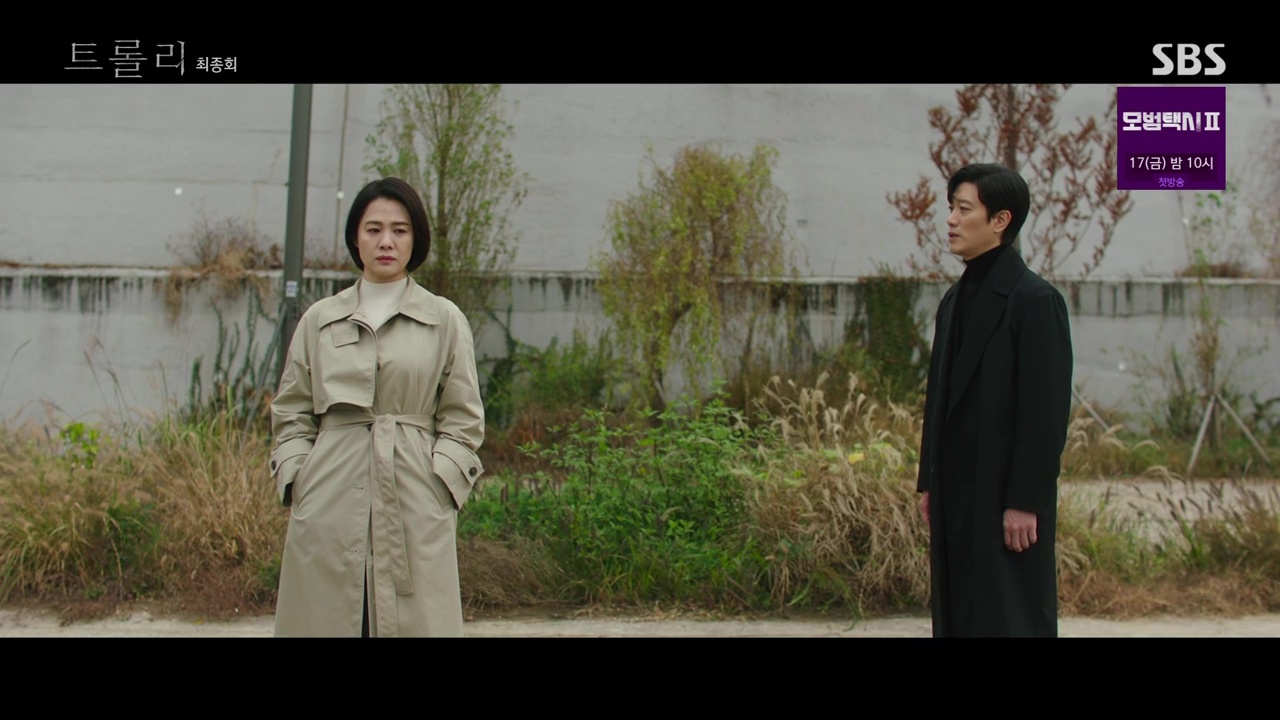
Phew, what a ride. Trolley had much to accomplish in its finale week, from delivering final twists, to elucidating the final trolley problem, to taking our hearts and crushing them under said trolley.
EPISODES 15-16
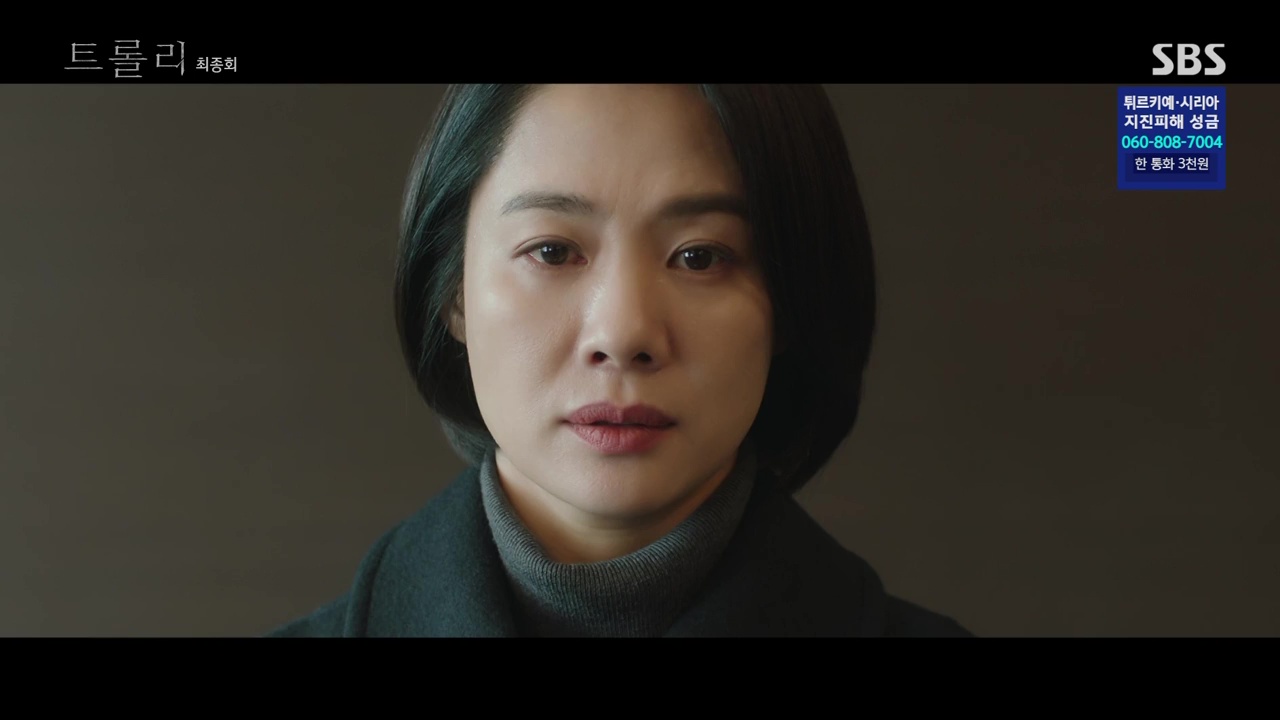
After a few months of watching a steady string of dramas that let me down with their conclusions, the finale week of Trolley reminded me what it’s like to watch a drama that satisfies. Trolley delivers its ending beautifully, and somehow manages to catch a glimmer of light in what I’m pretty much ready to call a horror story. There’s no serial killings or bodies hanging in meat lockers — but the horror of gut-wrenching betrayal and lies is a horror that goes far deeper.
I think we can all agree when we first tuned into this drama, it was with absolutely no idea of how many dark twists it would take, or that it would end with this final lurch of horrible actions. I have so many thoughts about the drama’s ending, and how it tied its web of interwoven moral dilemmas into a final crowning dilemma, but first: that terrible cliffhanger.
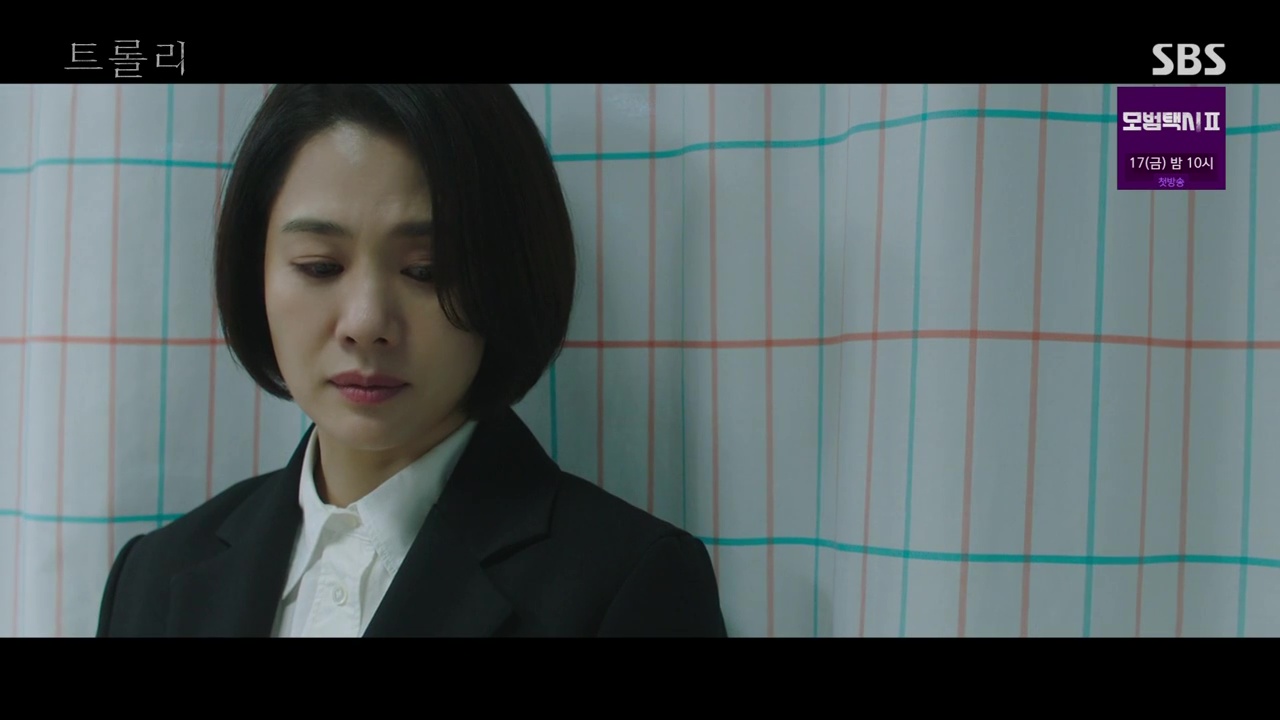
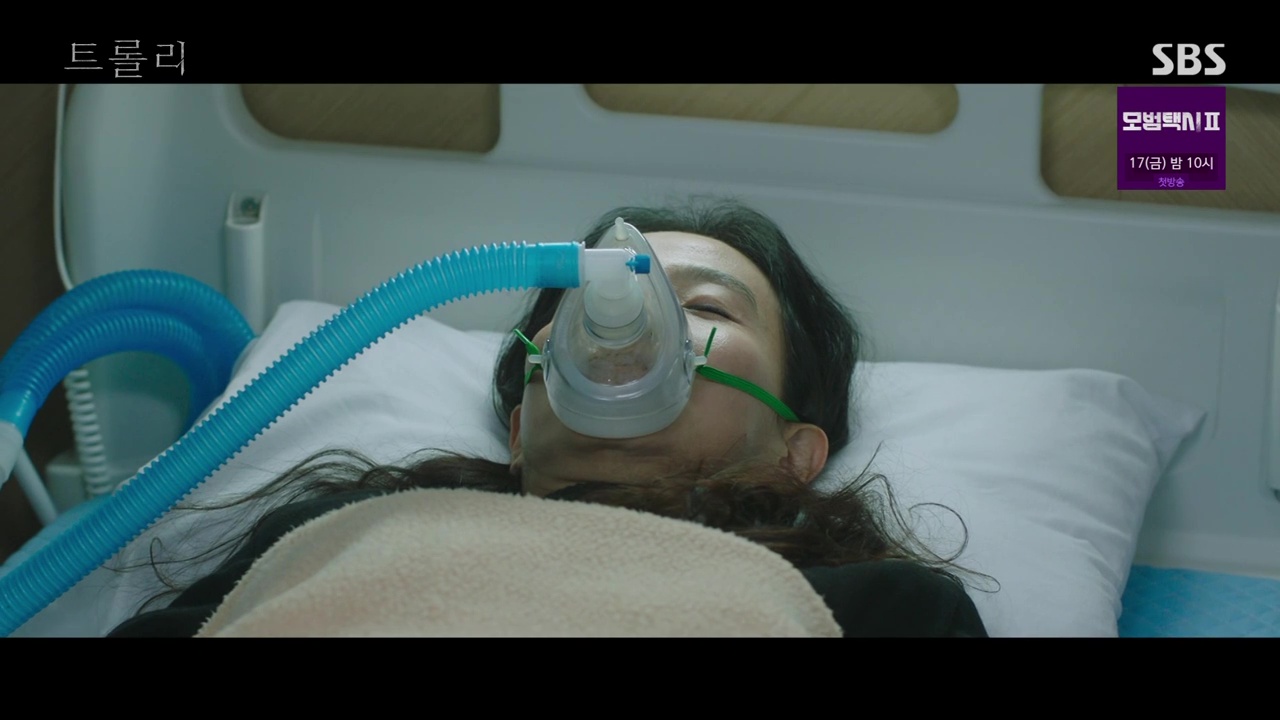
We pick up with Hye-joo’s TV appearance, setting the record straight around the assault in her past, and confirming everything that Joong-do has said previously. She is towing the party line, looking at the good the Namgoong Sol law will do, but it’s clear she’s not at peace with what she’s done.
At the moment, Hye-joo thinks she’s covering up her husband’s affair, and though we can imagine how she feels, she still goes running to the hospital when she gets a call that Yeo-jin has attempted suicide. She survives, and Hye-joo shoos off Joong-do so she can stay with her. There’s a poetic mixture of love and resentment in her eyes, but it’s about to shift when she hears the news we did in our cliffhanger.
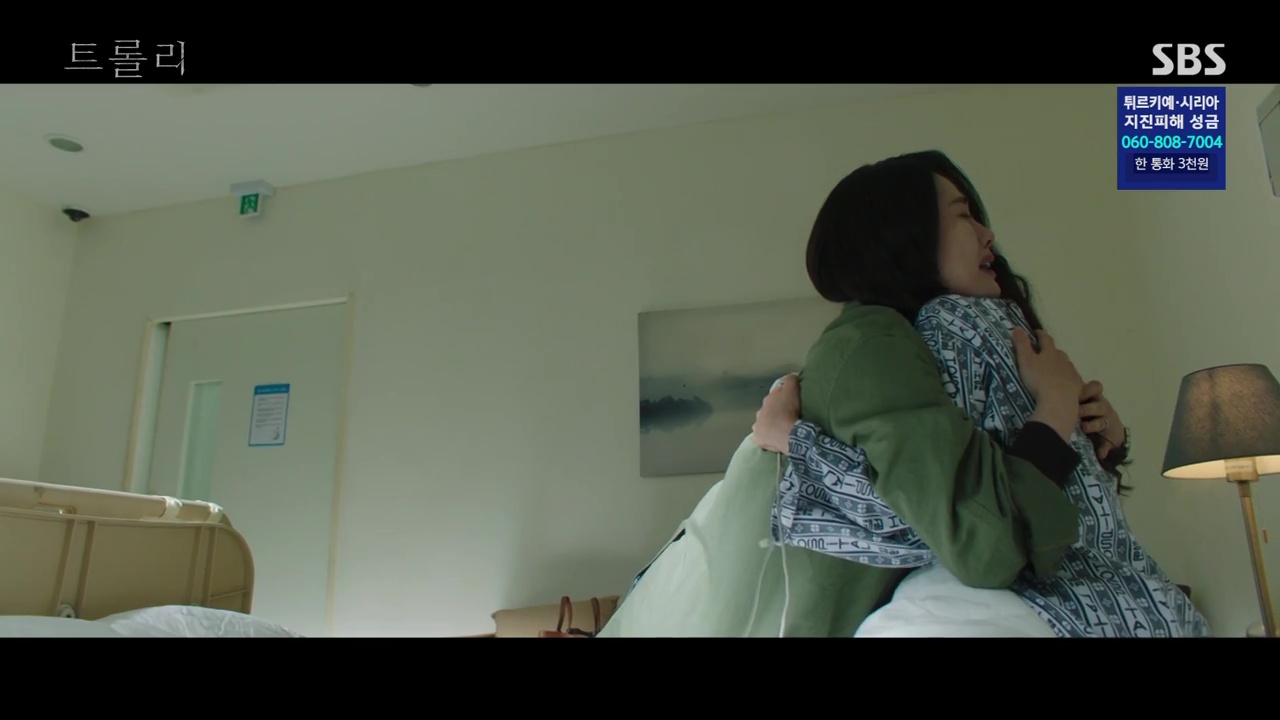
Yeo-jin wakes up and decides to tell Hye-joo that the affair was a lie: she was actually raped by Joong-do five years ago. Hye-joo, of course, has a hard time fitting this in her brain and denies it at first. But, as she weighs the possibility against what she knows of Yeo-jin and the lies she’s learned Joong-do is capable of, she soon comes to accept it. We see a flashback of Yeo-jin’s PTSD around Joong-do’s study where the incident occurred, and — gosh, it hurts — if anyone understands that kind of trauma, it is Hye-joo.
And so, these two women wind up comforting each other in this horrible mess they’ve found themselves in, and it’s hard to say who is more miserable and apologetic. The drama also fleshed out the conversation between Joong-do and Yeo-jin that Ji-hoon overheard, as well as the previous scene where Yeo-jin entered the study for the first time since the assault. As expected, with new context, both conversations read completely differently. It’s clear there was no affair.
So, while we can be relieved about the lack of adultery (and shame on the drama for that completely fictional moment of desirous gazes between Joong-do and Yeo-jin), where we land is far worse. It’s nothing short of sickening to imagine what happened to Yeo-jin; I can’t understand how that happened in that household and honestly I don’t want to.
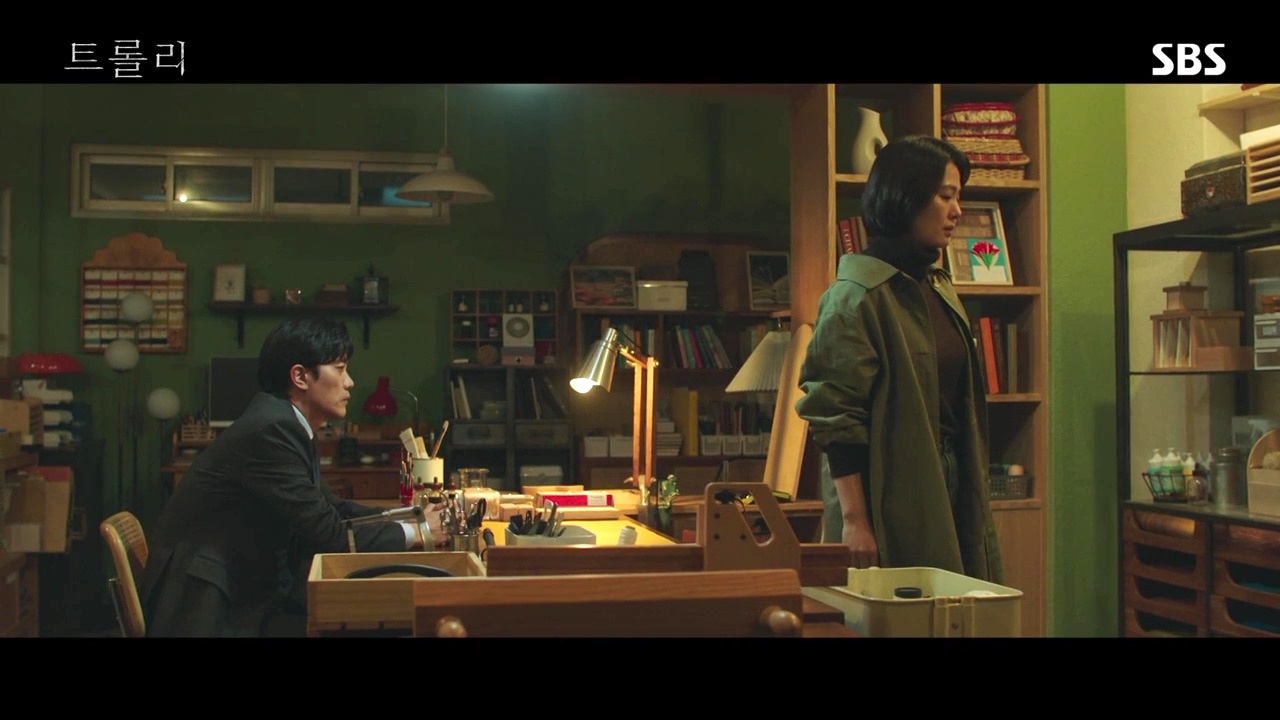
Here we quick-cut to Hye-joo and Joong-do in her studio in maybe the fifth or sixth scene where Hye-joo confronts her husband on a lie and he has to own up to it. Each time this has been dreadful, but this one is just unfathomable. Joong-do insists it was “a mistake,” and Hye-joo says what we are all thinking: How can you call that a mistake? How could you do something so heinous and preach Namgoong Sol law?
Joong-do’s perspective is that he was so doggedly pursuing the Namgoong Sol law — even falsely incriminating his own son — to atone for what he had done. He even insists that Hye-joo not apply for divorce until the law has had a chance to pass.
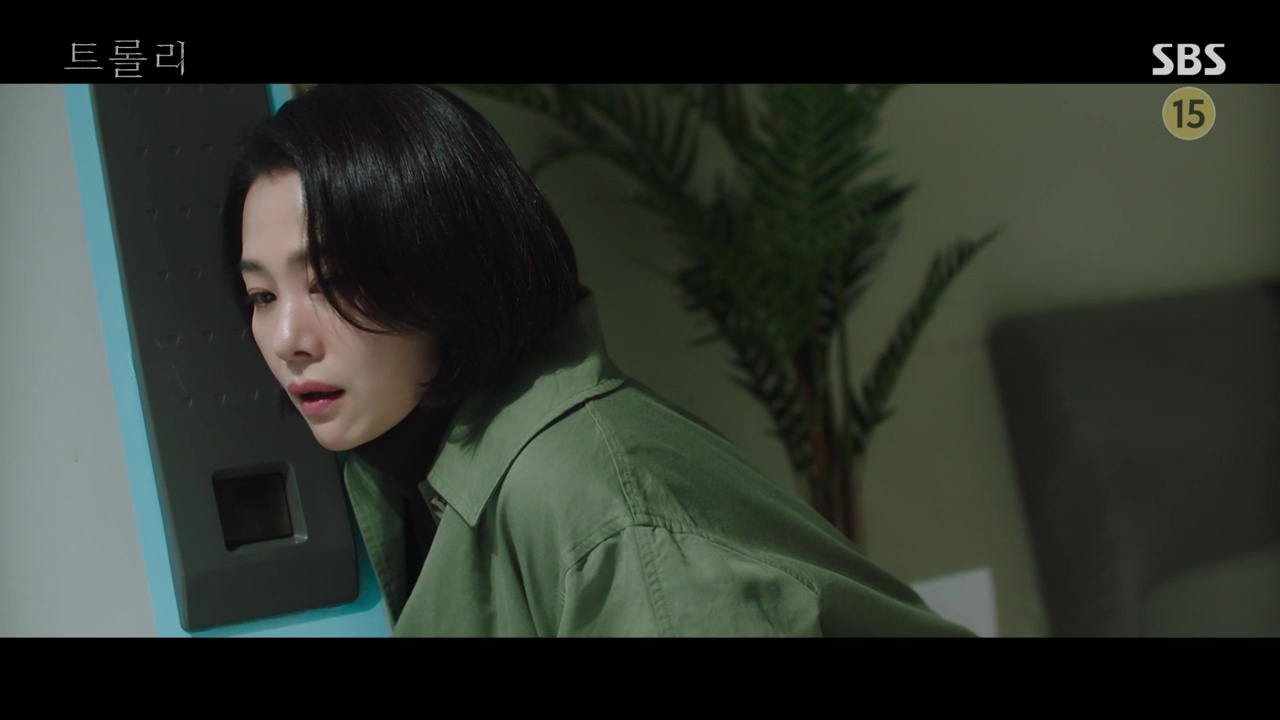
It’s nearly impossible to imagine what our heroine is going through right now. After being steadily broken in each chapter of our story, she has quite literally lost everything. Her innocent son is dead, and has been painted as a criminal. The trauma from her past that she was hiding has been exposed to the world. The husband that was her safe haven for so many years has turned out to be exactly the sort of evil that she thought she was running from. It’s diabolical!
However, what elevates all these tragic and depressing circumstances is the fact that instead of reacting, and reacting only, it is time for Hye-joo to step up. And it’s deliciously satisfying to see her go from the passive woman we’ve seen, to a woman who decides to take action.
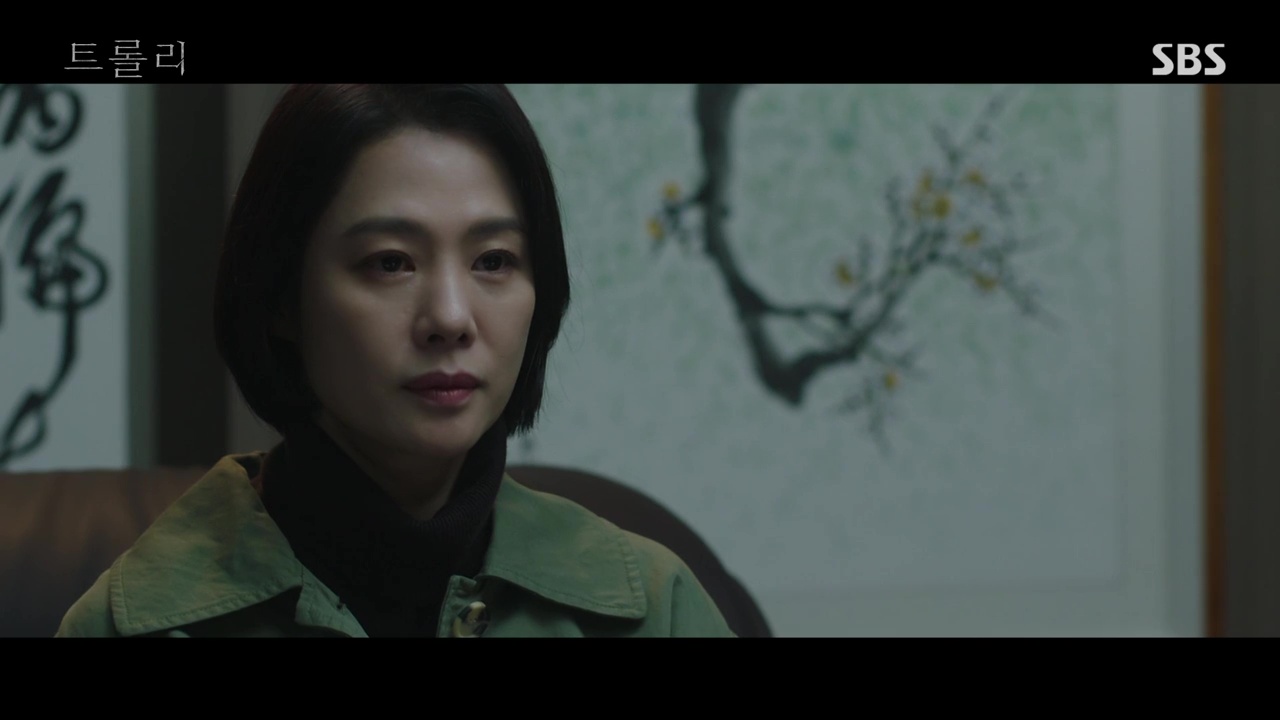
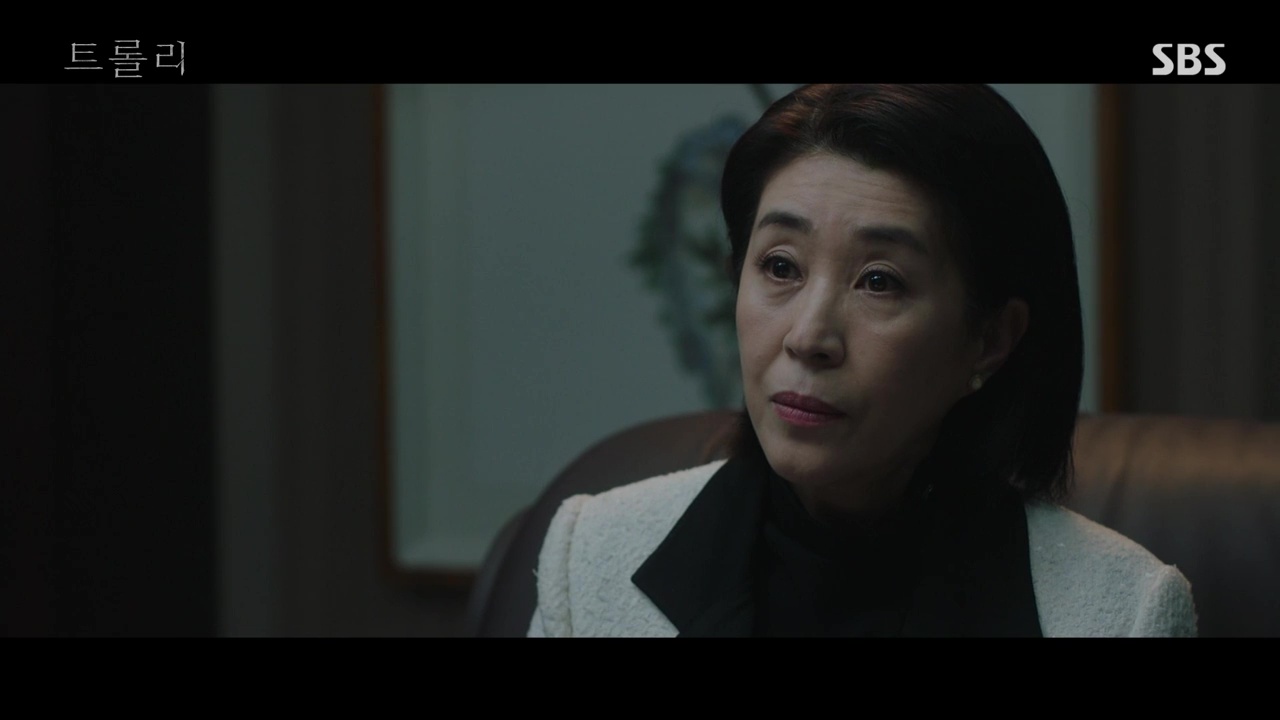
Her first stop is Chairwoman Woo (these two actresses together in such a weighty scene was so enjoyable to watch!). Hye-joo tells the truth of the assault to the Chairwoman and they have a rich and yet understated conversation. Chairwoman Woo paints a very clear picture of what’s at stake — telling the truth about this one incident, or choosing the greater good that the Namgoong Sol law will accomplish — but then she leaves the decision in Hye-joo’s hands.
There’s been a lot of discussion around the drama’s use of the trolley dilemma and how accurate (or inaccurate) it was, but I found this final lineup, in a string of moral dilemma lineups, to be quite poignant. I love it because it brings our heroine’s story full circle, and in the end there is no one better to make this decision, since she’s a victim herself. And so the question becomes: let this current victim (Yeo-jin) suffer, or expose the truth and essentially let future victims suffer.
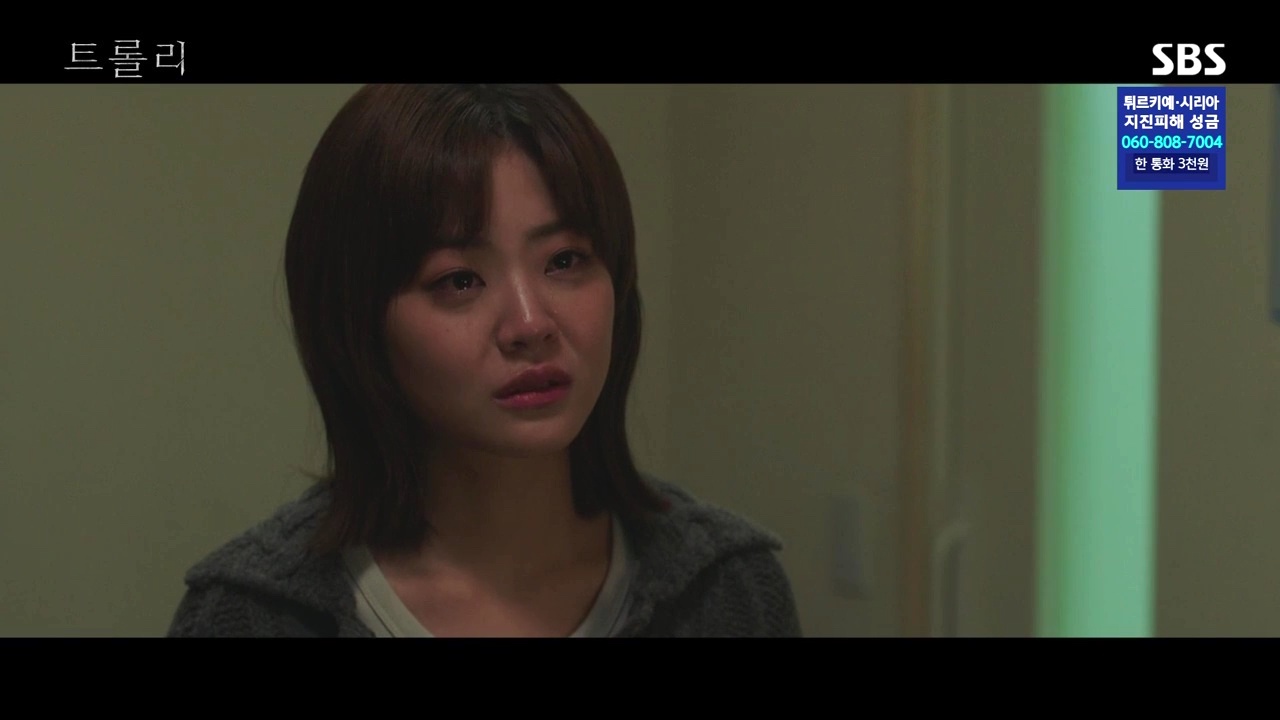
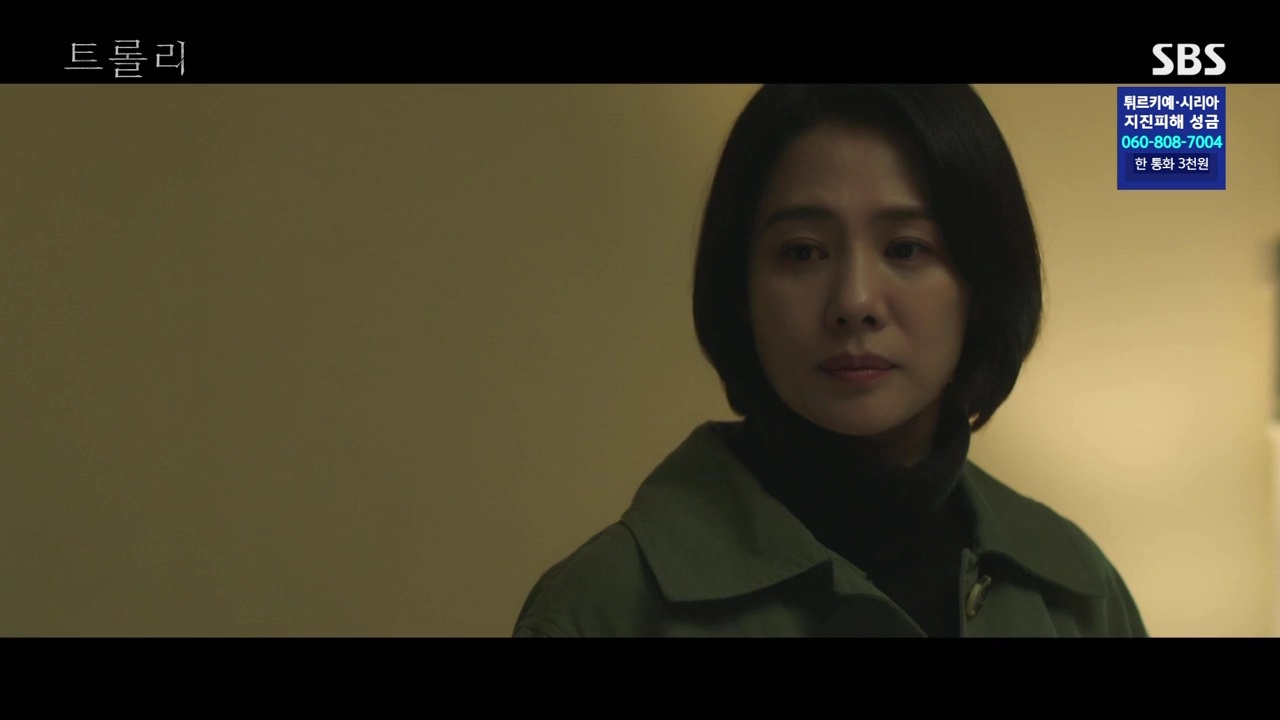
While Hye-joo is caught in her dilemma, one of the voices that impacts her is Soo-bin’s. The character who started out as sulky and opaque has, in the end, become the moral compass of the story. She cries openly to Hye-joo that what she did at the press conference was wrong — essentially the perspective that challenges the good that can happen (from the passing of the new law) when so much pain and suffering and deceit are at the root of it. There’s a beautiful scene when the morning sun floods into Yeo-jin’s hospital room, and by the resolve we see on Hye-joo’s face, we know she’s decided what she needs to do.
This means it’s time for a second press conference, and this one is even harder than the first. Hye-joo refutes every lie from the previous interview, and then accuses her own husband of the sexual assault five years ago. Everyone watches aghast, from Ki-young in his golf HQ, to Seung-hee and her mother, to all of Joong-do’s (totally shellshocked) staffers.
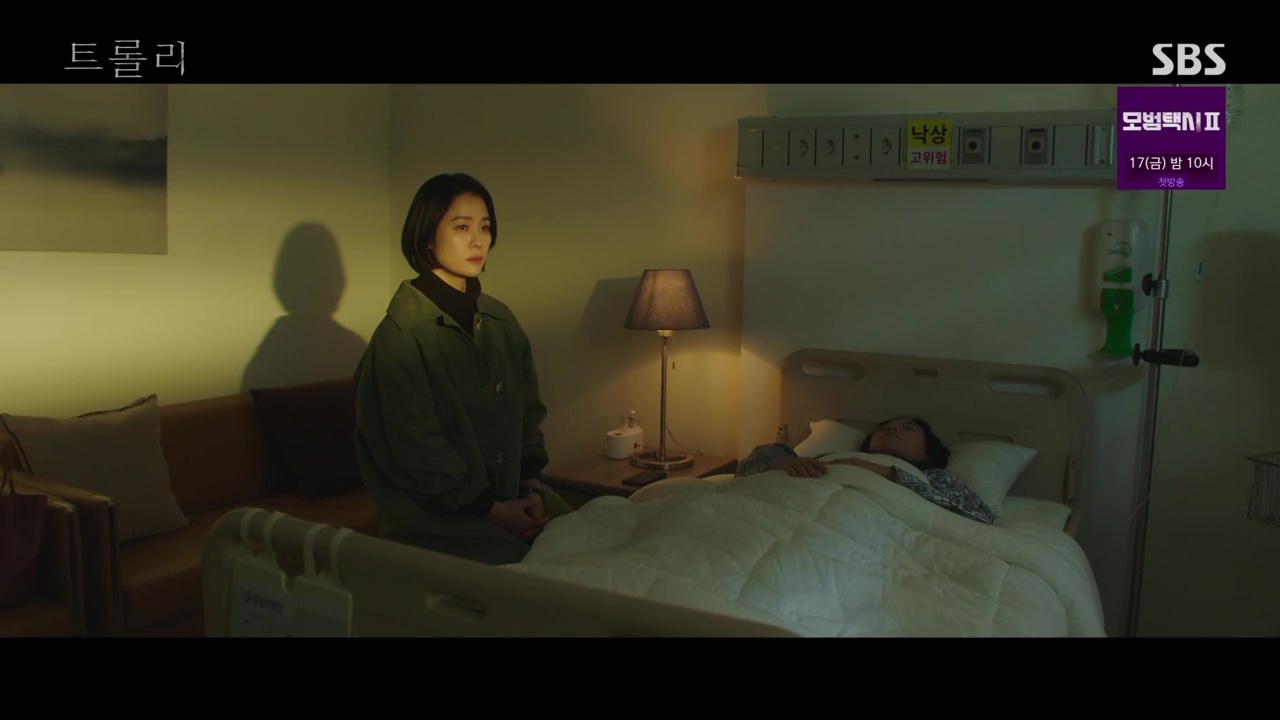
And then there’s Joong-do. Like a faithful dog, Woo-jae tells him what’s happening and advises him to the end, spinning every story they can for him to keep his seat. But Woo-jae’s scheming is falling on deaf ears; Joong-do looks utterly broken.
Woo-jae wants to secret him away for a bit — worried that he’ll go to the press and admit to everything — but instead Joong-do steals his car and drives off to Sokcho to put an end to his life. Hye-joo guesses where he’s headed and when she finally spots him in the ocean, she literally flails after him to keep him from drowning. This scene is so dramatic and emotional it defies words.
When the two are back on shore, Hye-joo sputters that he’s a coward, and Joong-do buckles under the shame of his actions. She tells him he must live as his punishment, and I wonder if he realizes that he’s doing exactly the thing he’s been trying to prevent other assailants from doing. Either way, this scene is just galling.
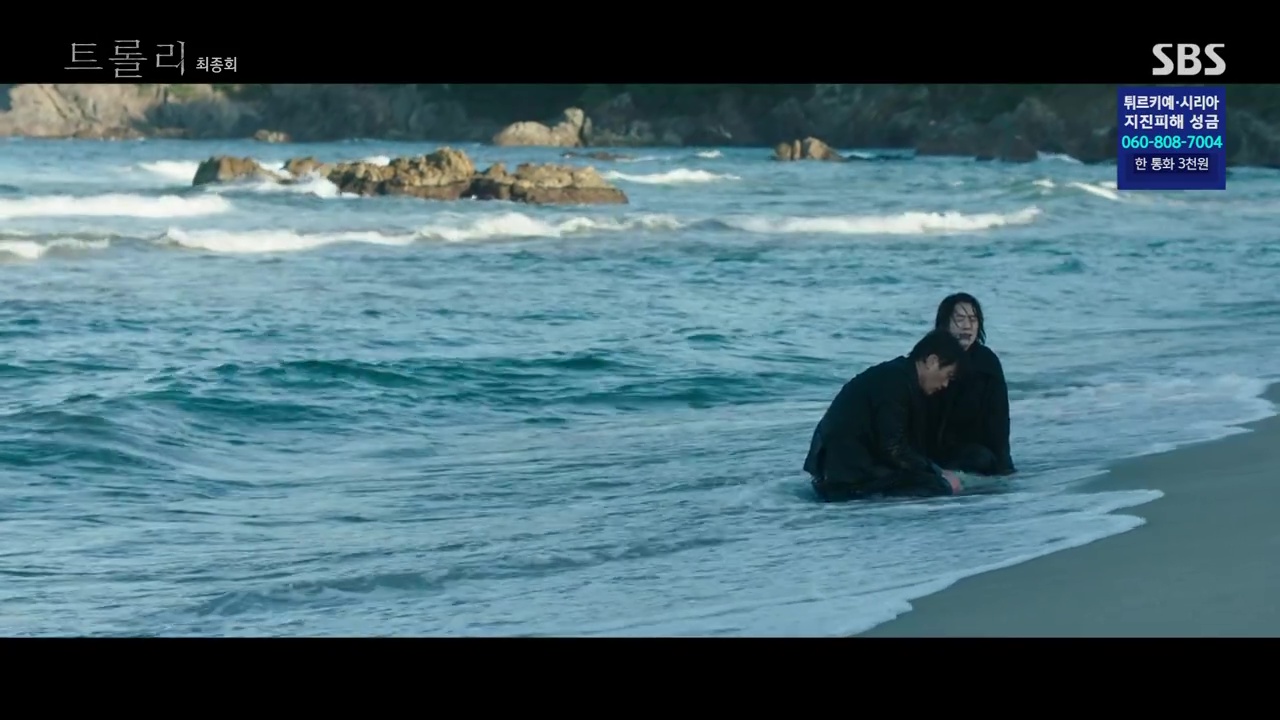
In the end, Joong-do takes his shame and his punishment. He admits to the assault, and when Hye-joo visits him with divorce papers five months later in prison, he seems utterly broken and says he will not appeal whatever sentence he gets. Hye-joo leaves him the little school book they’d looked at previously — all the dreams he’d had as a child of making the world a better place. Ouch.
But the poignancy of this story isn’t in the hypocrisy and subsequent punishment of Joong-do — it’s in the courage we see develop in Hye-joo. This final crisis takes her from the wounded bird hiding under the wing of her powerful husband, to a woman who finds her inner strength, and whose very vulnerability becomes her weapon.
And so, Hye-joo is able to do the unthinkable, like tell her precious daughter the truth about her father, tell the truth to the world, shoulder the humiliation — and all of those hard things — because she knows she’s doing what is right.
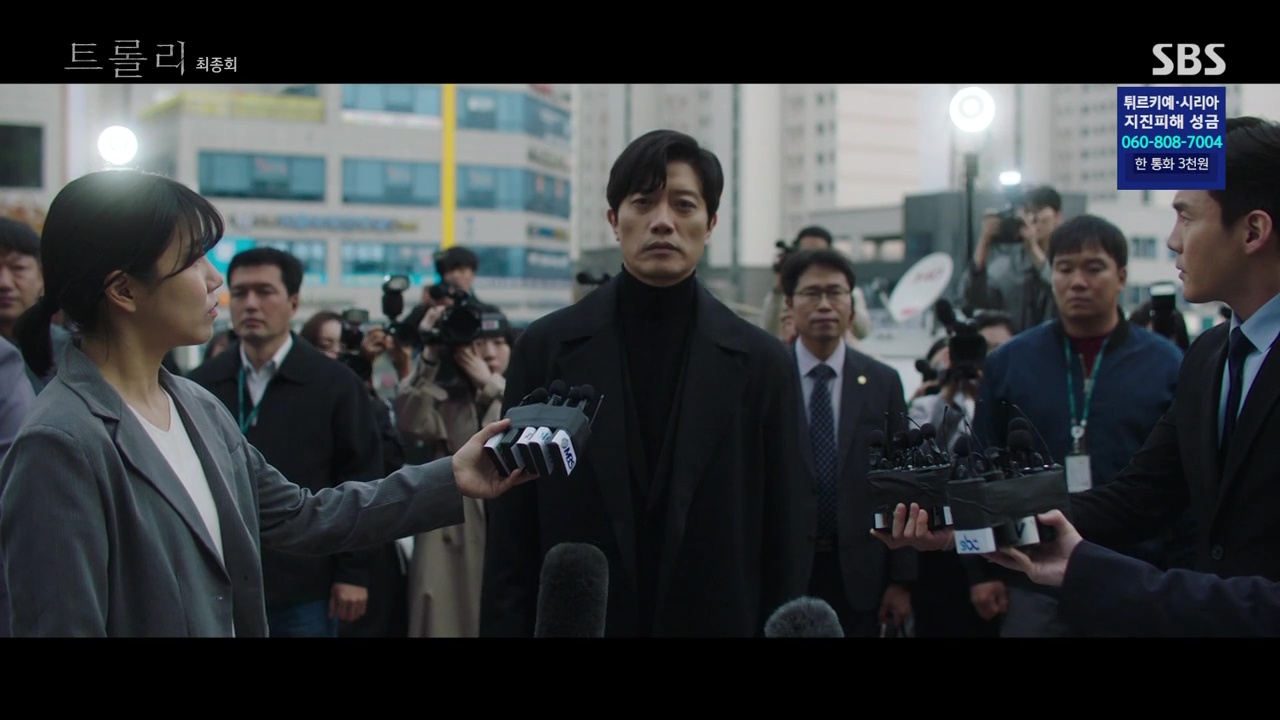
As Hye-joo tells Joong-do, he had make plans to secretly atone for his crime, but he had left the actual victim out of those plans entirely. And it’s a beautiful moment when Hye-joo looks at Yeo-jin and understands that having this one woman suffer in silence is not the right way to win anything. In the end, Hye-joo won’t let the trolley crush Yeo-jin to save future victims. Instead, she learns that having the courage to tell the truth, and bringing righteousness to the present, is the best way to make a brighter future.
I love this as our ending message, not only because it answered the construct of the drama, but because it brought an end to our heroine’s trauma: rather than hiding and covering it up, freedom comes when the truth is brought to light. (And in a way, the drama even takes that idea of light quite literally — we have so many sun-drenched rooms and bright sheets of clean white paper in these last scenes, signifying the power of light, truth, new beginnings, etc.)
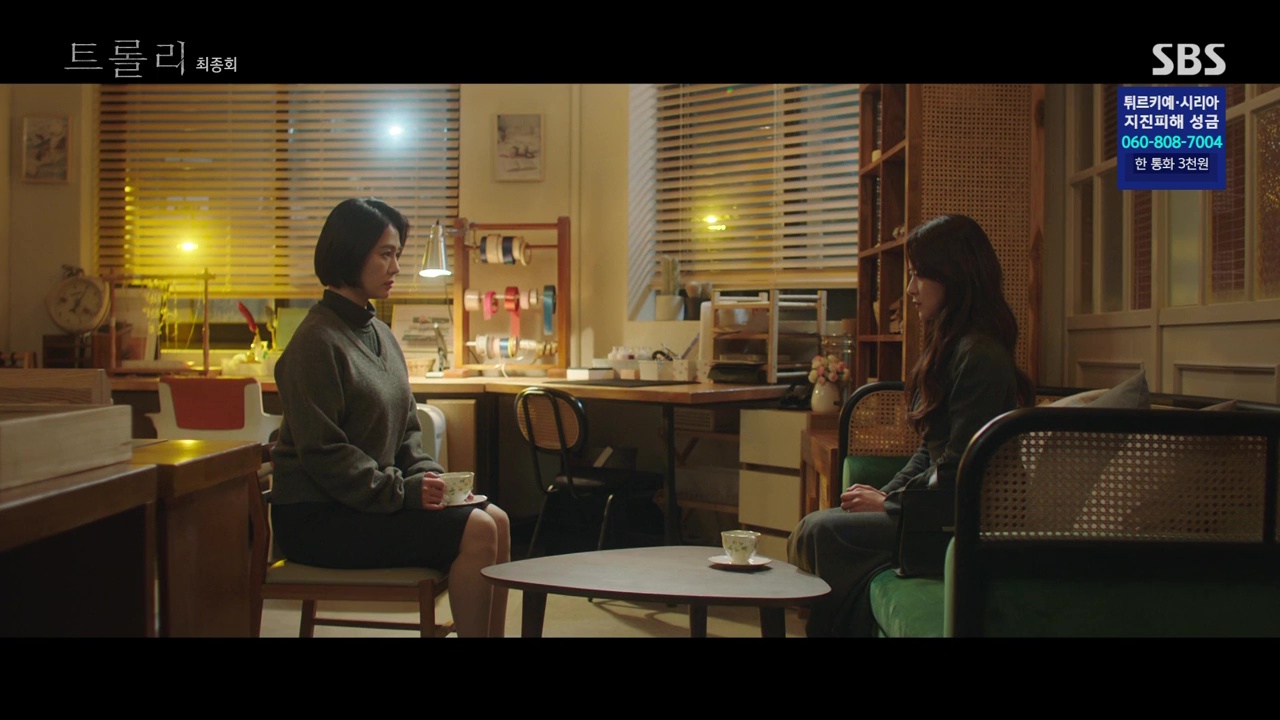
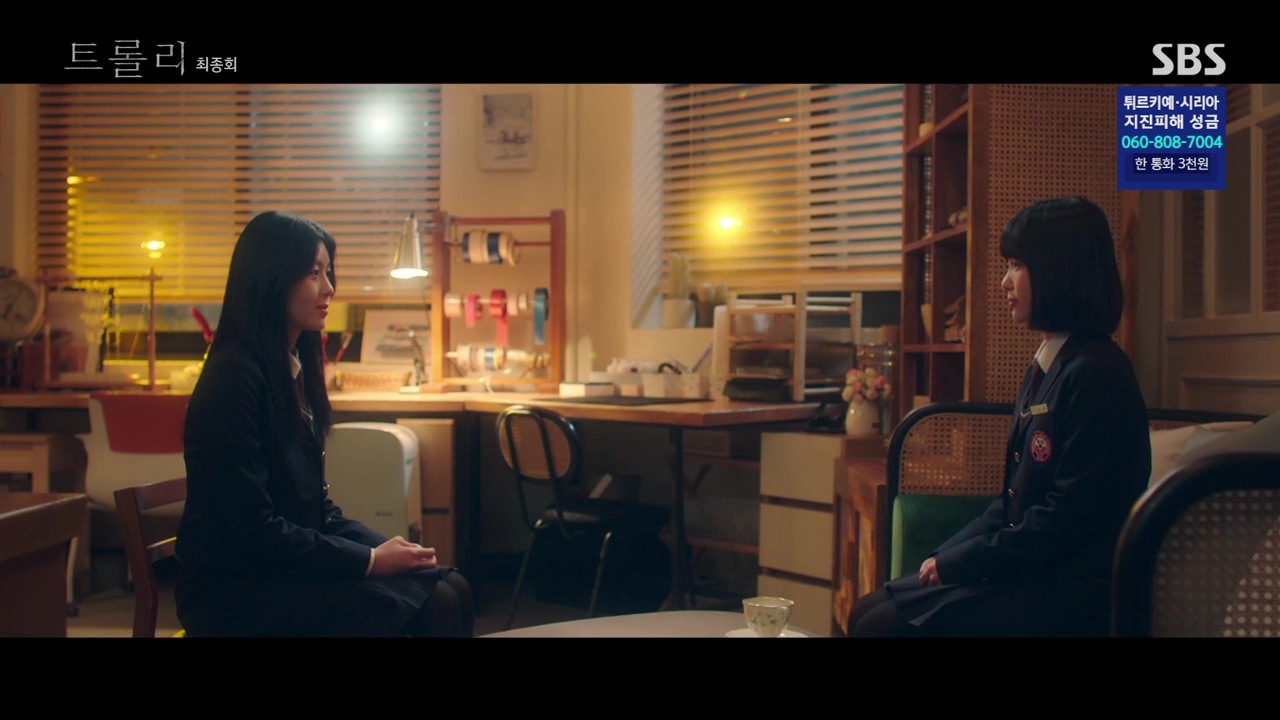
Trolley was such a strong drama overall — and covered so much ground in its final few episodes — that I want to go easy on it with my criticisms. That being said, the final few episodes were quite choppy, whereas earlier the drama took its time setting up each meaningful scene. It’s almost as if the drama needed an extra episode (a statement I don’t make lightly) to give the story enough space. They excelled at this earlier, so I won’t be too hard on the pacing of the concluding episodes, but I do think a little more time spent with this final (horrifying) arc with Joong-do would have helped. We hardly have time to process and fully digest what he’s been hiding, when the punishment is already delivered. Not that I want to spend any more time thinking about it, but I do feel this character deserved a bit more than he got, because in a way, his story is the deepest tragedy here.
The same goes for Seung-hee and her mother. For driving so much of the plot and being such fearsome antagonists, this was also wrapped up quickly. But again, this felt more like a screen time issue than a writing issue — because having Seung-hee apologize to Hye-joo and see them sitting there as girls facing each other… *tears* (Dramas must have cracked my code and know that anytime they do this character replacement motif to signify deep closure, it goes right to my heart.)
Despite the heinous things we learned that Joong-do was capable of, and then thankless psychotic lies that Seung-hee’s mother made no apologies for, I actually think that Woo-jae was our most unconscionable character. In a way, he represents the true foil for our heroine. Woo-jae believed so much in the “greater good” that Joong-do could accomplish that he was willing to hide rape, and even let an innocent boy drown in the name of political change — and without more than a flicker of remorse. Hye-joo, on the other hand, decided that if we can’t bring that “good” to the people that are in our lives right now, then the broader idea of good is basically useless. And I guess the trolley problem is solved in my book, because I agree with her.
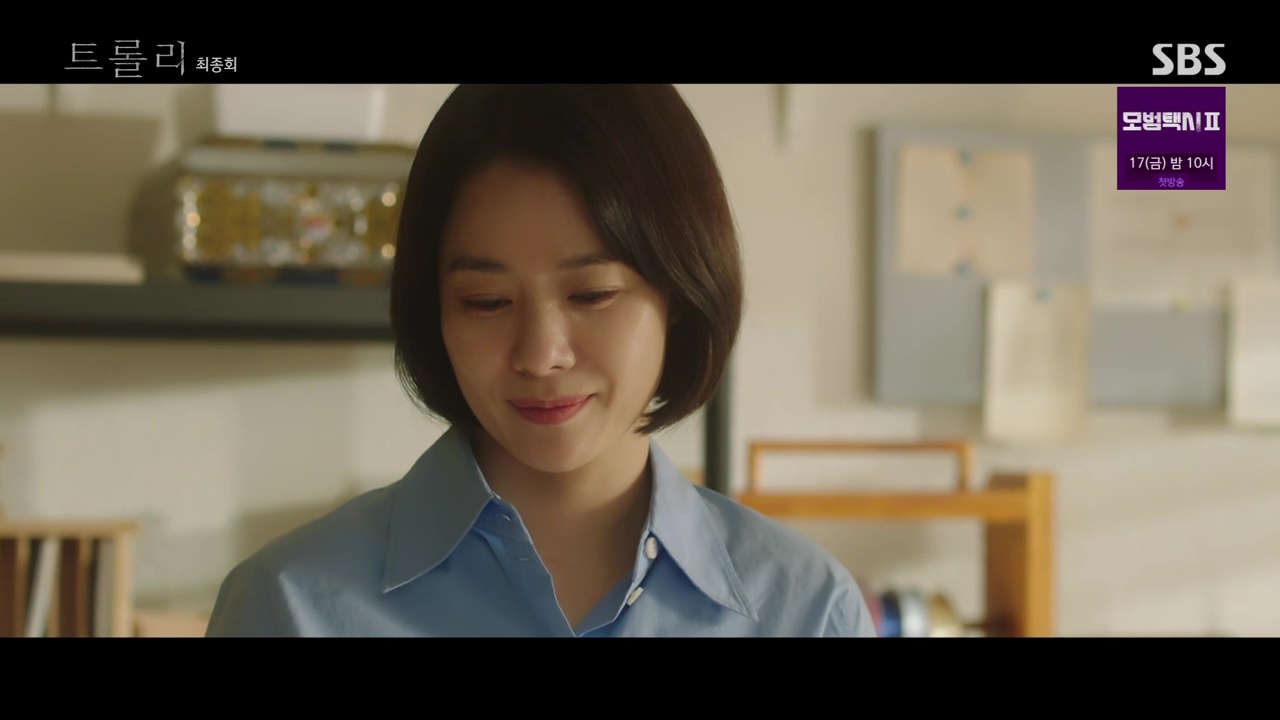
RELATED POSTS
Tags: Gil Hae-yeon, Jung Soo-bin, Ki Tae-young, Kim Hyun-joo, Kim Mu-yeol, Park Hee-soon, Ryu Hyun-kyung, Seo Jung-yeon, Trolley
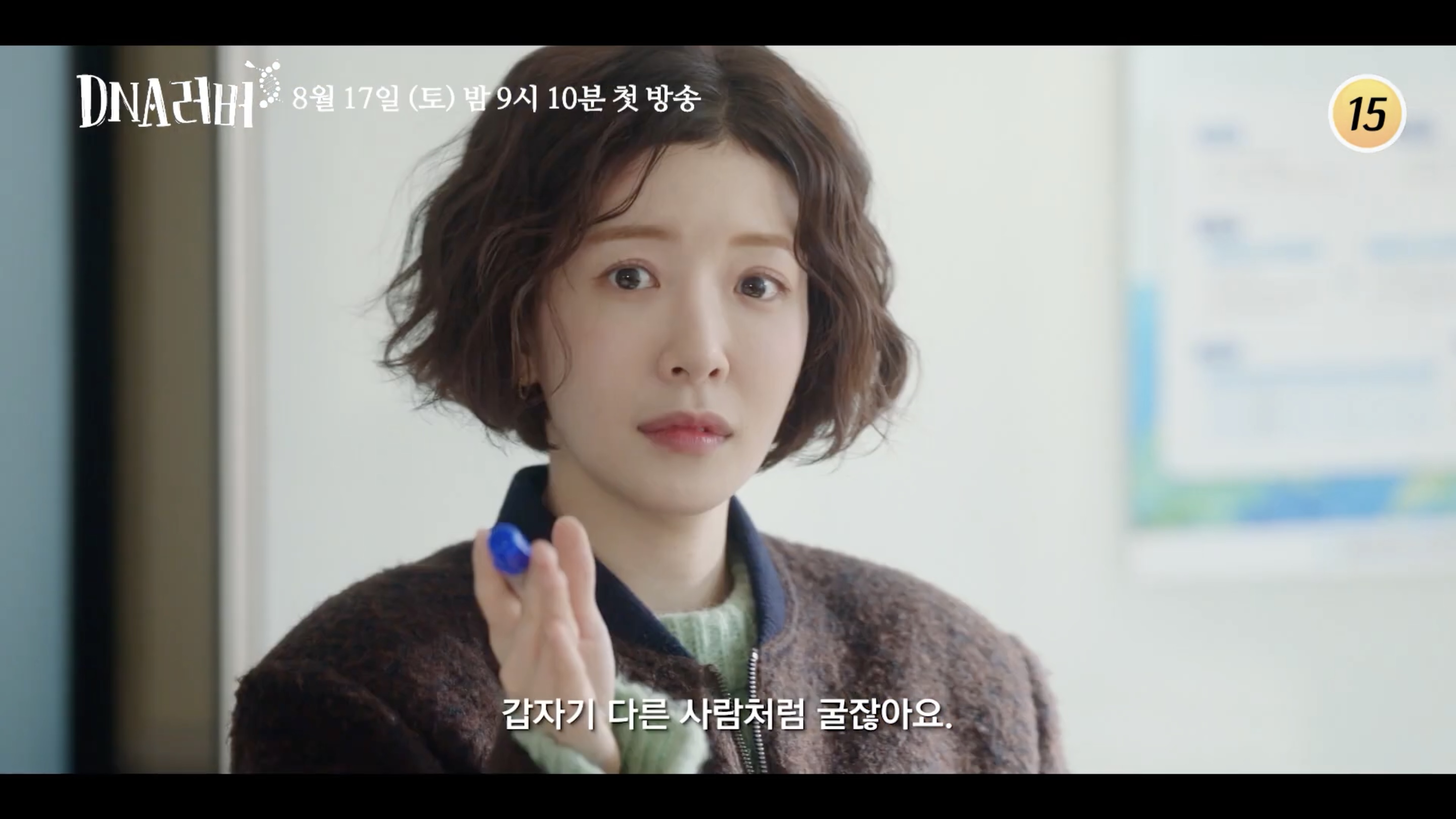
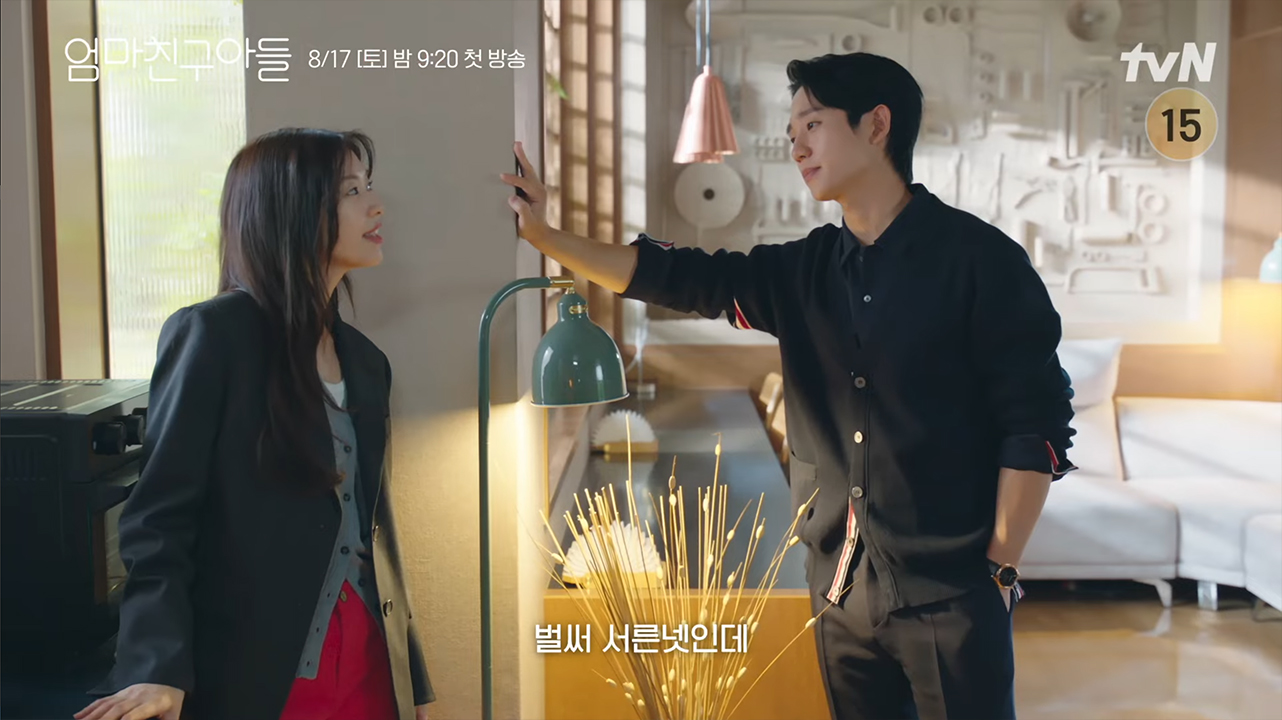
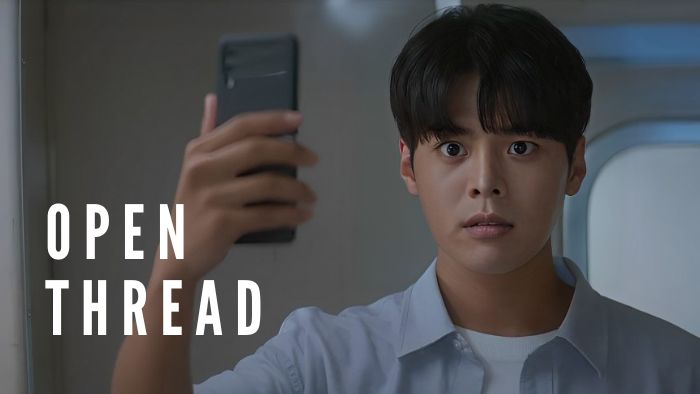
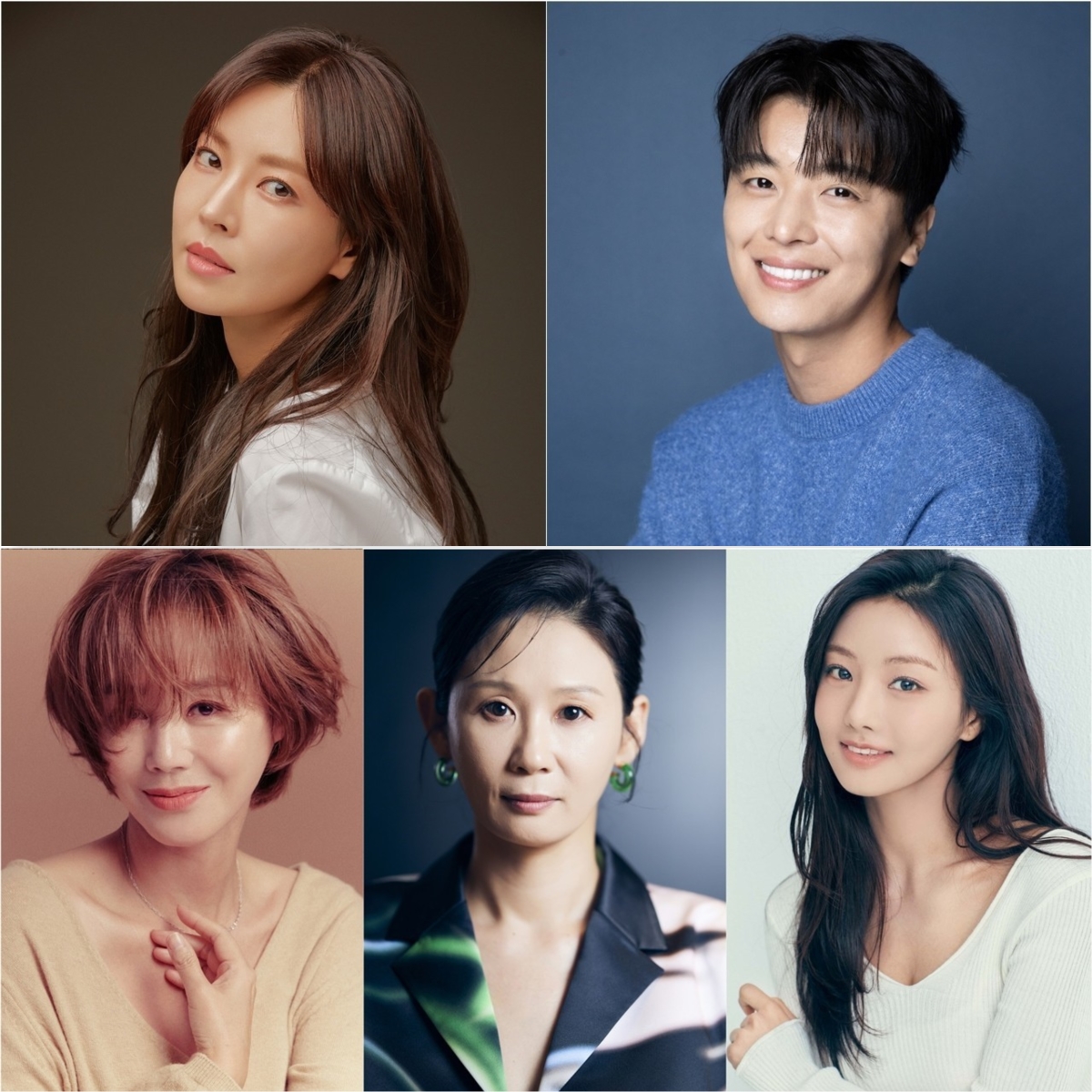
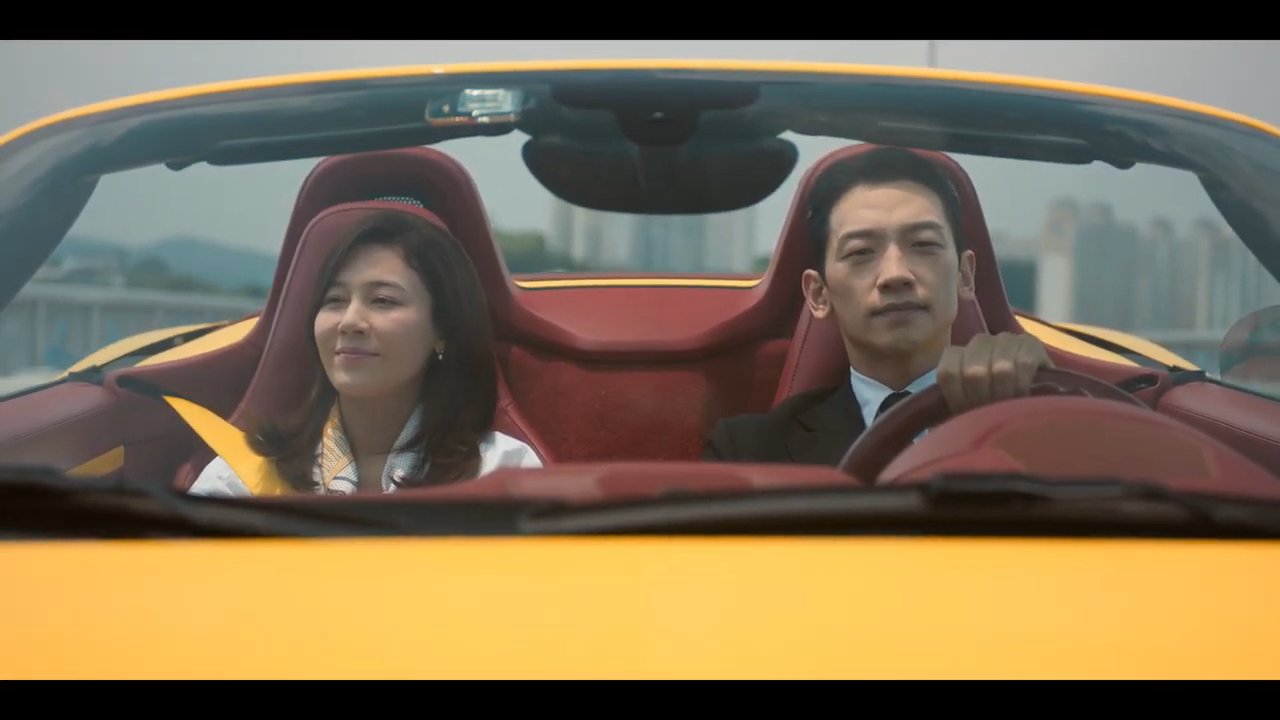
![[Cast Away] A conwoman is possessed by an upright politician](https://d263ao8qih4miy.cloudfront.net/wp-content/uploads/2023/09/castaway_header1.png)
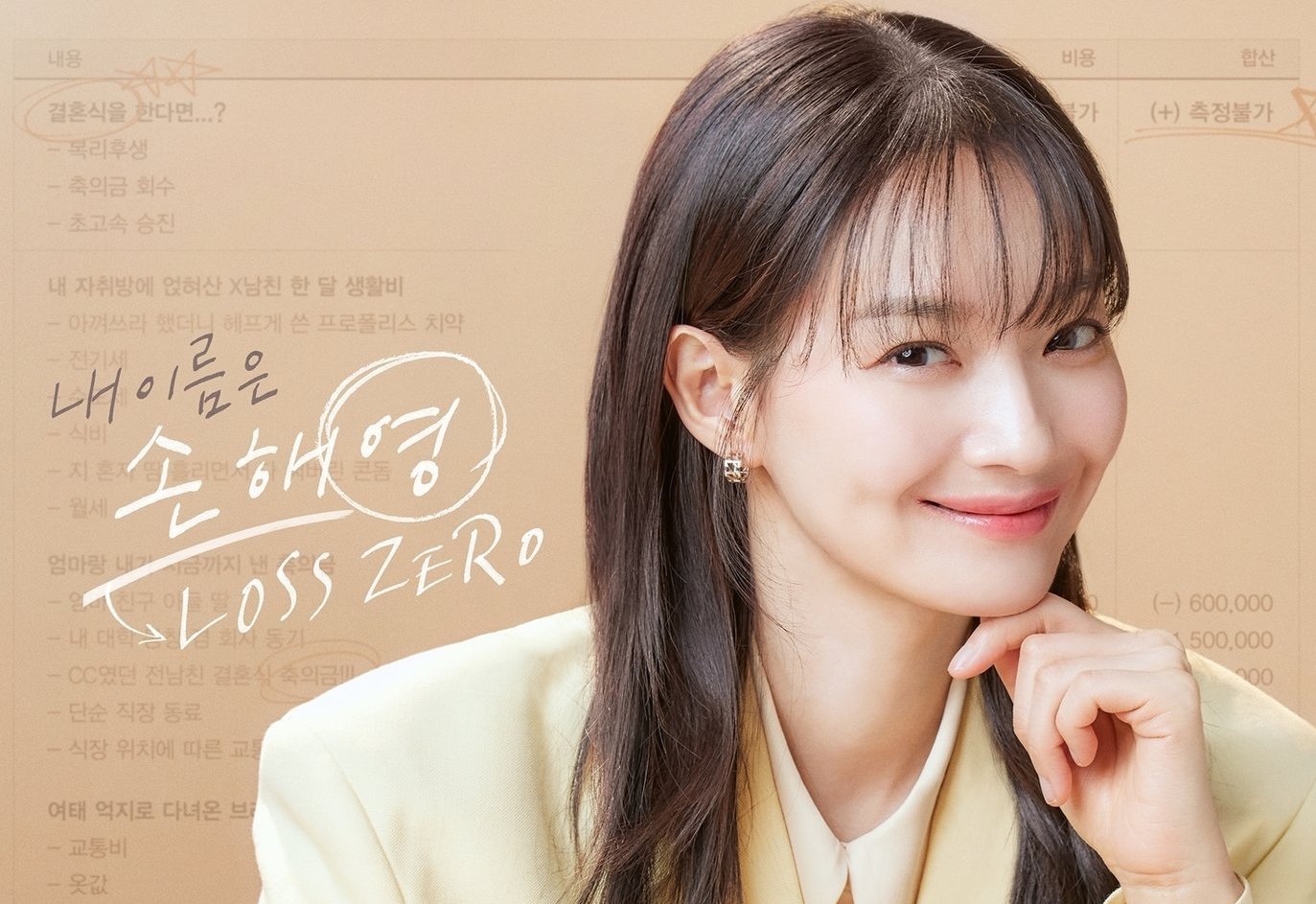
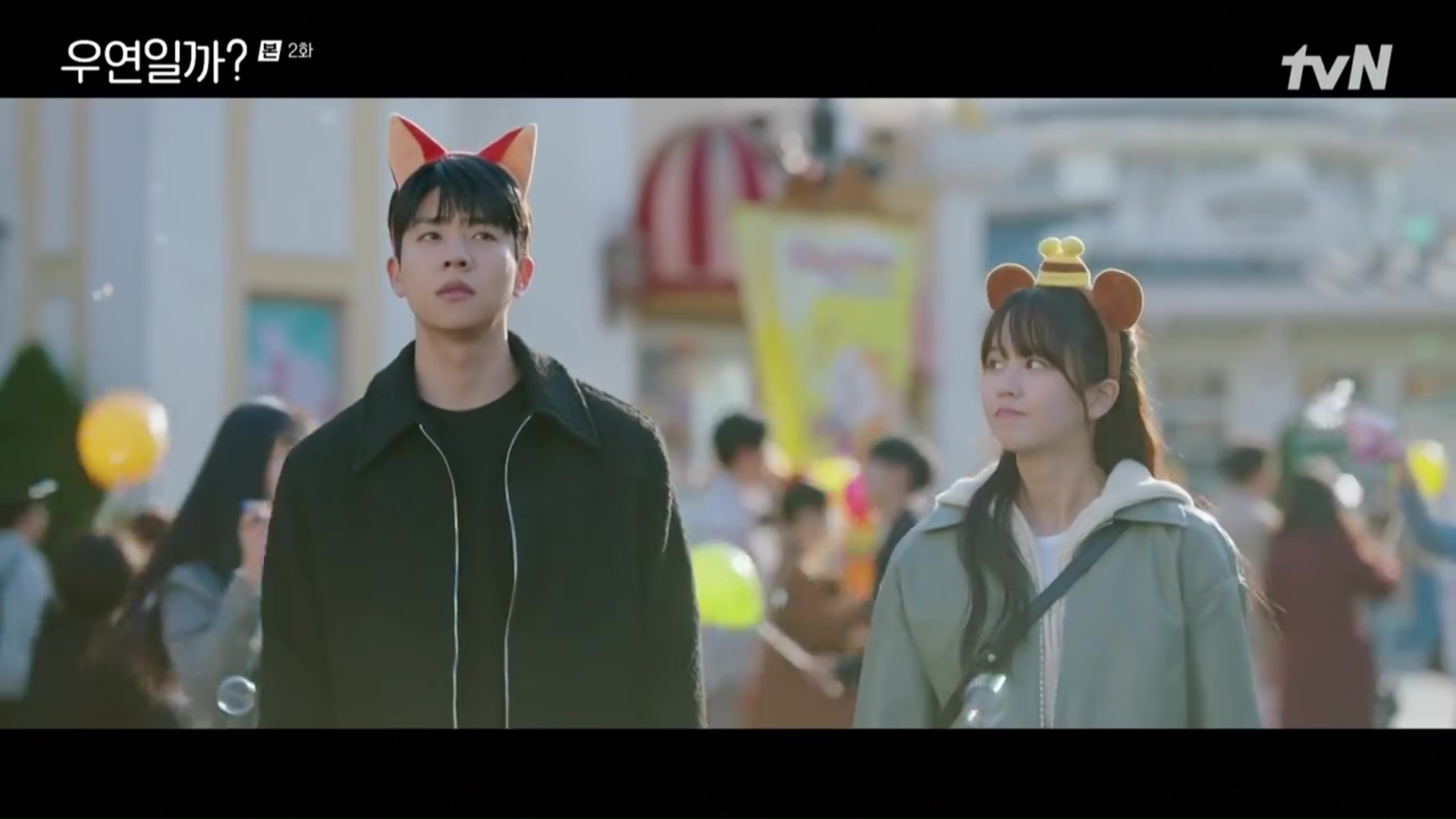
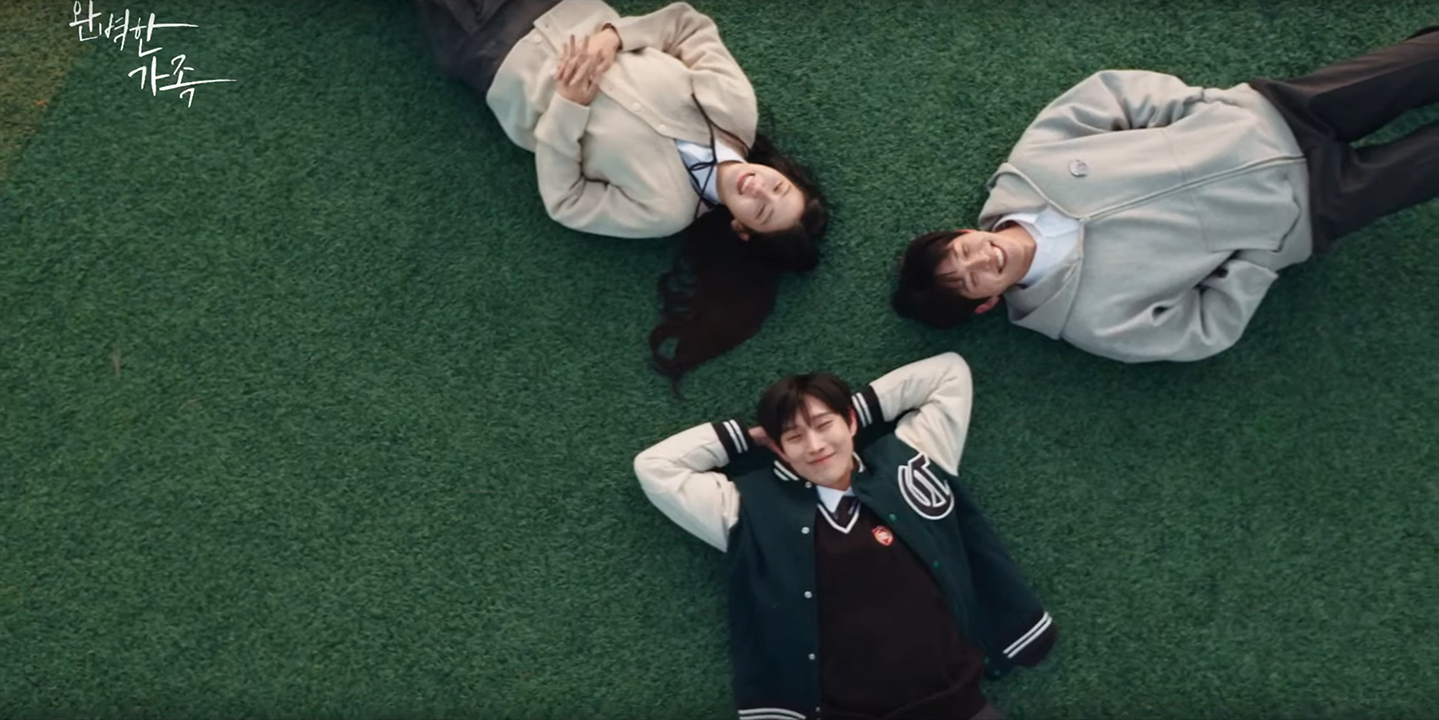
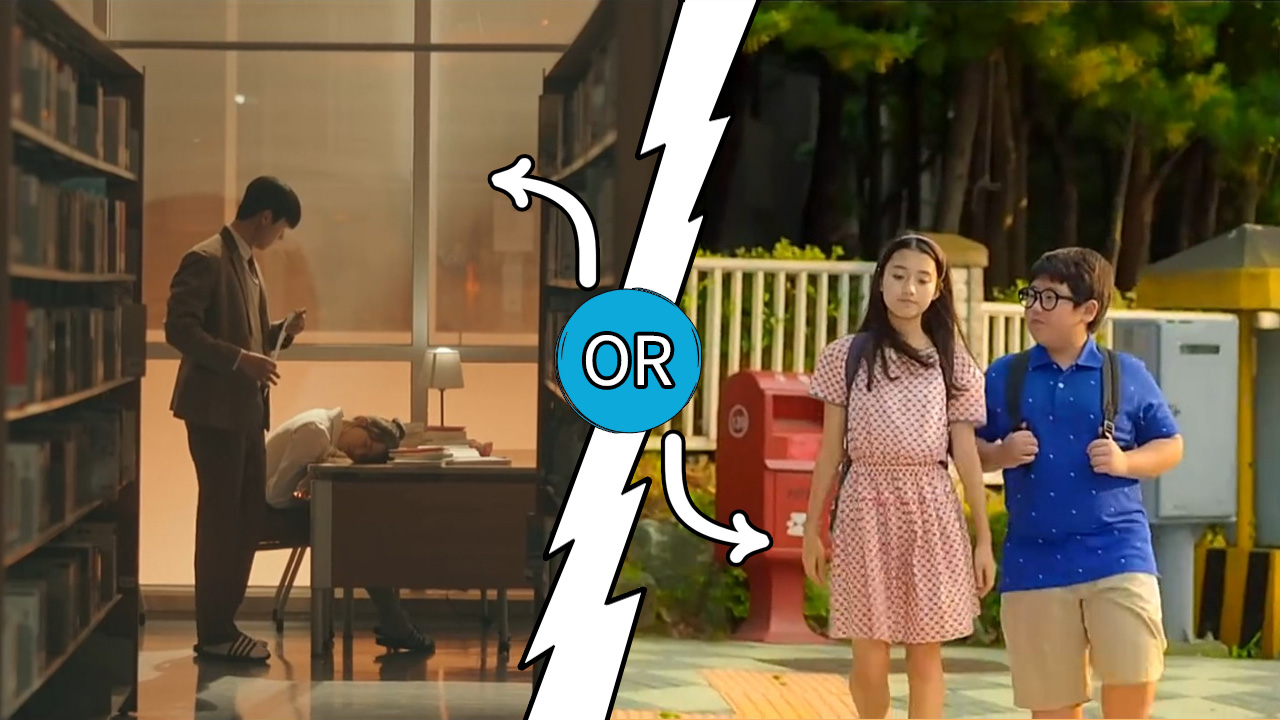
Required fields are marked *
Your email address will not be published. Required fields are marked *
1 Kafiyah Bello
February 15, 2023 at 10:13 AM
BRAVA!!!!!! This was such a good show. Super uncomfortable, but beautifully acted and well written. Truly, a proper trolley problem. It is sad that no one could see why that law was still important, despite the messenger.
Required fields are marked *
tabong 🦞
February 15, 2023 at 4:04 PM
I think it's better if another politician tries to implement that law later in the future.
I don't think the victims would like to be represented by a politician who's a sexual offender. I mean, it's call "Namgoong Sol law" and it was supposed to be approved after what he did to Yeo Jin and Ji Hoon, so...
The timing wasn't right.
Required fields are marked *
2 jerrykuvira
February 15, 2023 at 10:23 AM
Warning alert. This comment is centered around Joong-do.
Conflict. Conflict. Conflict. Conflict is all I feel as Trolley concluded this week. I'm still trying to process everything. Everything went downhill so fast that I couldn't catch a break. I never lost hope too. I spent week in week out as everything tumbled over hoping that Joong-do survives each mess he put himself in and for the most of it, he did redeem himself. But for each redemption, another mess out of the Pandora box will be revealed, and the cycle continued. The writer wrote Joong-do so well that I was very undecided whether or not to get away from his bus. I can't ignore that he committed an act against someone like family, nor can I ignore the fact that he's the kind of politician that would make a good difference in the world when you remove a few of the crazy things he did. His fellow assemblymen might not have done the exact same thing he did but they've done worse. But then, good intentions do not matter anymore with the manner of things he did. But I wished he didn't pay the way he did. With the way Joong-do and impact of the things he does were written and shown on my screen, I wanted his good intentions to count. I wished he had simply resigned away from politics and Hye-joo divorced him. That way the Namgoong Sol bill will have passed without worry. I wished that Hye-joo had waited for the law to pass before revealing the other truth. Let the bill pass and let him be the very first person to have a taste of the bill he proposed, that's if he had gone through with his attempted drowning. I thought they'd go this way. I guess Hye-joo and I react to things differently.
It was no ethical error. It was a moral error. And I was on the lookout as to how he feels about it moving forward. A line in the conversation he had with Yeo-jin that Ji-hoon overheard : " Right. I'm sorry ". Just like that. Joong-do was supposed to remember, not forget. This was something that still tormented Yeo-jin but it seems like he had moved on. The trauma that flashed and lives on Yeo-jin's face after that sentence is something that should make him never forget. Even if he might not hang his head in penance, he should not have forgotten. And if he did forget which didn't sit well at all, he shouldn't have said " Right. I'm sorry" just like that, like nothing tragic happened. Joong-do can move on while not forgetting what he did. The thought that he actually forgot for a moment or a long span of time didn't sit well at all.
When a women's well-hidden secret past comes out, it threatens her beloved husband's political career. Their marriage and their life together come under threat.
If you ask me, Trolley is my latest example of what was billed vs what was delivered. And I didn't like it at all. I'm still trying to reconcile what happened in the first half of the Trolley, the second half, and then compare both to the commentary we have in...
Required fields are marked *
jerrykuvira
February 15, 2023 at 10:25 AM
...in the drama description.
I am a satisfied viewer. I like what I watched. But I'm left bitter at the end of it. A comment on Asianwiki adds in another aspect of how I feel at the end of the watch : "If the fact that this series leaves you feeling drained by all the misery involved then it gets a thumbs up from me as I have experienced a huge range of emotions while watching it". And I can't agree any less.
Required fields are marked *
Hawti
March 17, 2023 at 4:09 PM
I agree with every piece you wrote. Joong-do was my favourite politician, his passion for politics and making the town a better place was endearing. It was just so unfair that the writers of the drama had to put the rapist story on him and in a way deviate from the path we were on from the beginning of the story.
Required fields are marked *
Hawti
March 17, 2023 at 4:08 PM
Comment was deleted
Required fields are marked *
3 hacja
February 15, 2023 at 1:38 PM
While acknowledging the excellent acting in this drama, as well as the cleverness of the writing and the overall conception, I’m (perhaps too harshly) critical of two things:
1. The idea that Hye-Joo faced any sort of larger ethical dilemma (as opposed to personal risk) in whether to tell the truth in public is totally absurd. "Yes, you should keep silent about heinous crimes in order to save a piece of legislation that will in all likelihood be completely symbolic and have little effect." I find that just stupid. Its precisely what happens when writers get enamored of an abstract idea like "the trolley problem" and apply this simple minded thought experiment schematically to a drama.
2. Beyond that, I get the message of this show that if you are a rape victim, if you don't stand up for yourself, then no one will. I really don't like that this message puts ALL of the onus on the victim, but I recognize that's the way society operates. What I balked at was the additional suggestion that if you are married, and you are rape victim, not only will you get no support from your husband, but he'll turn out to be a rapist himself. (Yes, I've read the arguments of Andrea Dworkin that rape, or at least women's degradation, is the basis for all heterosexual relations. But of course as a married heterosexual man, I'm going to reject that.)
In fact, I would have so much preferred a different self-realization story that would not have minimized Hye-joo's trauma or provided a fully feel good ending, but would have made the argument that (male dominated) society has to change its attitude. And, in my opinion, that message could have been conveyed by making Joong do a truly loving husband and non-rapist and recognizing, in the end, that he can't use his wife and her traumatic past as a vehicle for his ambitions--that a different kind of male reckoning is required than can be expressed in a piece of revenge legislation.
This story line could have been just as searing, and just as critical of society's attitude toward rape victims as the one this drama told. But it wouldn't have had so many of those sensationalist writer's twist moments that this show was in my opinion too eager to display.
I realize these days I’m always rewriting the endings of dramas I’m watching, so that says more about me and my inability to appreciate the show’s perspective than the failings of the drama. But still, in my opinion, this show did not at all realize its promise.
Required fields are marked *
Scottie
February 16, 2023 at 11:50 AM
Your ending would have made a very good drama, too, but I do believe that Jong-doo had to be a rapist and especially a rapist who does not commit suicide as a way to escape punishment, but one who has to accept that he needs to be judged (by society) and locked up for his crime, suffering through the punishment he deserves with the hope that he will end up as a reformed human being.
I think that the writer wanted to put the spotlight on this issue in regard to sexual violence in Korea which leaves the victims without closure and open to be vilified.
That I think is at the heart of this drama, never mind a trolley.
Required fields are marked *
4 owl 🦉 🫰
February 15, 2023 at 2:04 PM
“…it is time for Hye-joo to step up. And it’s deliciously satisfying to see her go from the passive woman we’ve seen, to a woman who decides to take action.” Thank goodness, I see a lot of woman-to-woman power initiated here under their collective terrible circumstances at the hands of cowardly but abusive men. I’m angry ay Joong-do’s mindset of the greater good first, and just how many godawful things he unconscionably justifies to get there (wherever “there” is). Hye-joo yelling above the waves that Joong-do better live so that he can be punished, wow, that’s a big ball of everything emotions.
Seung-hee’s turnabout in the face of the truth was actually refreshing. Woo-jae has to live with himself - people died! - foolish faithful dog that he was.
For me, the mother-daughter moments were heartfelt and well done. I am grateful for that. Horror story or slice of life, It’s scary that Trolley is both at times.
Excellent recaps, missvictrix!
Required fields are marked *
5 Peridot
February 15, 2023 at 3:47 PM
Overall, this was a very good drama. I don't want to be misunderstood, but I can't help but feel so disappointed in the way Joong-do's story arc progressed.
Initially, when I watched this show, I was one of those viewers who rooted for Hye-Joo and Joong-do. I understood that various challenges were supposed to come their way, and each time I was looking forward to seeing how they would overcome those challenges. Early on, I also feared the possibility of infidelity being introduced.
Somewhere in the middle of the show, I started viewing Joong-do's words and actions with suspicion. Every time Hye-joo would confront her husband in a lie, Joong-do would reply in such a way that could be taken as both genuine and manipulative. More and more, I would lean toward the latter interpretation, while still hoping that viewers were being mislead.
Then, towards the end, I just saw Joong-do as a liar. A liar so caught up in his belief that he was working for the greater good that everything became fair game to achieve that good. I was willing to accept this development in the story, however disappointed I felt. Disappointed, not because of bad writing, but because of how far this couple I had rooted for had fallen. By painting his son as a sex offender to gain public support for his bill, Joong-do crossed over into the truly objectionable and (for all intents and purposes) unforgiveable.
But I just couldn't accept the last revelation that Joong-do was a rapist. I don't know if I find it believable from a character standpoint. I get that Joong-do could be so caught up in the supposed righteousness of his cause that he could become what he thought he'd never be, but I just don't like that the story added this great sin on top of things. I am not sure if I am the only one who feels this way (that it does not seem in character, despite Joong-do's lies and deceit). This development in the story really affected me on an emotional level, so maybe I am just overreacting.
And while not expecting a full playback of events, I wanted to know what Joong-do meant by the rape having been an accident. How does one accidentally do something like that? I didn’t want a justification for his actions; I just wanted to get an idea of what happened.
I haven’t commented on most of the threads for this drama, but I just had to get out these thoughts. I hope I expressed myself as clearly as possible.
Required fields are marked *
LaurenSophie
February 15, 2023 at 4:12 PM
I completely agree with your take. Although one could argue that there's no real or satisfying explanation for why someone rapes someone else, I still wanted to understood Joong-do's choice to force himself on Yeo-jin. Did he consider it an accident because one or both of them was intoxicated at the time? Or did he mis-read her passivity and vulnerability as a desire for comfort from him that he offered in the form of sex? Or finally, was he simply a brute who wanted to exert power and control over someone because he draws pleasure from that? I wish the drama had clarified his motivations. It doesn't matter in terms of whether or not he is a "true" rapist or not; all of these scenarios result in a terrible violation, and none can be explained away or excused. But understanding what his motivation or desire was in committing this horrid crime would have given us a greater understanding of his character.
I also agree that I'm not sure this twist was truly needed, either, when it comes to what this drama was trying to accomplish thematically with the trolley problem. To me, it seemed almost gratuitous, especially since both Hye-joo and Yeo-jin had already both been used and abused on so many other levels.
Required fields are marked *
Peridot
February 16, 2023 at 7:40 AM
I like the examples you use. Instead, we are just told that he "accidentally" or "mistakenly" raped someone. A little context would have gone a long way.
"I also agree that I'm not sure this twist was truly needed, either, when it comes to what this drama was trying to accomplish thematically with the trolley problem. To me, it seemed almost gratuitous, especially since both Hye-joo and Yeo-jin had already both been used and abused on so many other levels."
Yes!
Required fields are marked *
jerrykuvira
February 15, 2023 at 9:28 PM
I feel differently too. I can't accept it either. The addition of rape seemed to me like they were determined to do Joong-do dirty and they began by little little things that he managed to scaled through until they finally nailed on him the one where there's almost nothing for him to scale through. I wished they had used coffee vs tea as a trolley problem and developed more on that. Joong-do painting his son as a sex offender when he knew the full truth is enough incentive for me to know he has crossed the line. To add in rape was very unnecessary unless if they wanted to properly do him dirty from the very beginning and used a sin the audience can never decide to overlook.
Required fields are marked *
Peridot
February 16, 2023 at 7:41 AM
"... like they were determined to do Joong-do dirty...." Yes, it does feel that way.
Required fields are marked *
6 tabong 🦞
February 15, 2023 at 5:05 PM
Hye-joo, on the other hand, decided that if we can’t bring that “good” to the people that are in our lives right now, then the broader idea of good is basically useless. And I guess the trolley problem is solved in my book, because I agree with her. I feel the same!
1. I'm still trying to understand who's worse: Joong Do or Woo Jae.
Woo Jae was BAD but kind of predictable? We knew what to expect from him, he didn't pretend to be something he wasn't.
But Joong Do... That guy was so manipulative. The way he did whatever he wanted and thought that he didn't have to assume the consequences. The way he had the audacity to play the victim. The way he was always making excuses and trying to guilt trip people, but the worse part is that even when he says something wrong he sounds genuine?
When he talked about his studio to Yeo Jin like it was nothing, and then he was like "oops, I forgot raped you there. Sorry. But where's my document?" made me sick. He made it sound like she was overreacting and like what he did wasn't a big deal because he already "apologized" and he forgave himself.
He wasn't going to commit suicide because he felt guilt or something, he was just damn embarrassed he got caught and he actually had to deal with the consequences. For once in his life he was going to take responsibility, of course he was scared.
So I'm really glad that no one took his side, I'm really glad that no one seemed to believe that he had the right to hide and lie "for the greater good", I'm really glad that the public response didn't attack Hye Joo, I'm glad that no one forgave him, and I'm glad he can't make more excuses for his actions.
I don't think he actually cared about people, I don't even know if he cared about his family, he was way too deep into his own world where only his goal matter.
Anyway, till the end, I'm proud of Hye Joo and I really hope her daughter learns from her and grows up to help others, not hurt them, even if it is for "the greater good".
...I feel bad for Ji Hoon. 😭 But I'm happy with the girls helping each other and creating their own family.
Required fields are marked *
7 loveblossom🌸
February 15, 2023 at 7:10 PM
The finale wrapped up well. Hye Joo was strong and made her own decisions instead of reacting to someone else's. Glad Soo Bin and Hye Joo remained close.
I agree that Seung Hee and her mother's part was resolved a bit too quickly after all this time spent on them affecting Hye Joo and causing trouble. Then again, I didn't care about their side/screen time so whatever. I have a similar feeling about Joong Do. He gradually showed how manipulative he was. But the rape crime was still shocking. And then he got his swift punishment.
I felt so sad for Ji Hoon, even more now that we learned he could have been saved! Ugh, knew Woo Jae was awful. Wish he had suffered wrath from some karmic gods.
This drama was dark and draining for most of its run. The light came through only in the final hour. The use of sunlight, the fresh page of white paper, and the overall final scenes looking warmer and brighter were nice touches. I like that they ended with Hye Joo's book conservation job and emphasizing the theme of healing and fixing damaged pieces.
Required fields are marked *
8 Adinda
February 15, 2023 at 8:15 PM
Once in a blue moon, I am lucky enough to find an awesome drama, like this one. Thank you for your insightful recap, it really helped me understand the drama fully. BRILLIANT!
Required fields are marked *
9 Bunny Sonaki
February 15, 2023 at 11:27 PM
It was such a ride from beginning to end. I was initially a bit hesitant to watch the drama but @missvictrix's first-week weecaps got me hooked.
We are at an entirely different point from where we started but it isn't always a bad thing. Yeah, it is one of the unique dramas where we keep getting entertained until the end. Luckily the drama didn't join fellow kdramas in all was going well until the last episode trope (looking at you reborn rich where till now I refuse to watch the ridiculous finale).
I liked that Soo-bin remained a part of Hye-joo's life till the end. She indeed was the moral compass that got Hye-joo to do what she needs to do. The scene where Soo-bin changed Hye-joo's contact mane from Mrs. Kim to probably mother was really touching.
Unlike the brat teenage daughter, Soo-bin was the one who stood by Hye-joo till the end and the found family dynamics are really pleasant to watch.
I agree with fellow beanies and @missvictrix that we needed to see more of Joong-do's motivations though nothing can justify or excuse his cruel crime of forcing himself onto someone. I thought he was just manipulative but not in our wildest dream did we imagine all those crimes and lies.
I am not fond of how Seung-hee's and her mother's car was wrapped up. I don't buy that Seung-hee was actually shocked that her mother was a shameless liar. How could she never have thought about the possibility of Hye-joo telling the truth? For me, I see it as Seung-hee deliberately blinding her eyes to the truth and choosing to believe her mother.
I wanted Hye-joo to really sue them. They were evil and hurt her beyond words in the past and even now. Seung-hee kept being adamant till the bitter end about being evil, threatening to disclose Joong-do's sexual assault if Hye-joo doesn't apologize to them on TV. Not sorry at all, but a simple apology and an imaginary scene of both women as teenagers won't cut it.
Even if Woo-jae isn't the one who pushed Ji-hoon into the river, that still counts as murder since he chose wittingly not to help Ji-hoon and left him to drown.
The villains in the show are on a different level. They aren't typical or 1D and just it makes the story more interesting, it gets me more infuriated by their remorseless actions.
I have a lot to say but I will just be content with those. I will miss the show and reading about fellow beanies' theories and thoughts. Hope we get another nice drama (maybe with less tension) soon and rant about it together.
Required fields are marked *
10 Scottie
February 16, 2023 at 2:25 AM
This drama may or may not be a trolley problem, but for me the most interesting character to watch was Joong-doo. Park Hee-soon played this character to perfection and I loved how the drama exposed him by stripping off one layer after the other.
I think he truly believed himself to be a good person and a good politician. He always spoke softly, he was kind to the weak, a good listener and very persuasive. The way he manipulated his wife showed him to be a master of his craft! One of the most important skill of a politician is to be persuasive.
He is also a great strategist and knows when and how to put pressure on people. Politics can be dirty work and he is ready for it. An excuse for the way he is using his son could be that the son's behaviour was bad (going to prison, threatening him) and deserved to be punished, but since the son is already dead this punishment cannot really harm him anymore, actually as the father he himself is harmed by the shame of having a son like this. So it is alright.
He can describe the rape only as an accident, because it does not fit in with his believe that he is a good person, for him it was a strange mistake which he does not want to examine any deeper (that is why we are not given any reason for what triggered the rape). Therefore the feeble apology - it was not the real him.
Was it satisfying to see him stripped of this fake veneer? Yes, it was!
The person I really feel sorry for is the daughter who has to live with the shame of what happened to her family at such a young age.
Required fields are marked *
11 Linarrick
February 16, 2023 at 4:48 AM
I honestly don’t think this drama really tackled the trolley problem. While I understand the thought process behind the Namgoong Sol law, the most recent high profile case I can think of is actor Jo Min Ki, who had sexually harassed and assaulted over 20 victims and committed suicide. The case was closed after his death. So while I definitely understand justice not being served, in most cases it’s hard to prove rape, regardless if the perpetrator has died or not. And in South Korea specifically, the law is really weird about self defence. Where you can’t really defend yourself irrespective of whether it’s physical or sexual assault.
https://seoullawgroup.com/justified-self-defense-in-korea/
Part of me wondered why the drama didn’t tackle this issue also? That said, I completely loved how Hye-joo confronted Joong-do about his inauthentic apology, Joong-do thought his penance was to work hard as a politician and do good to society and therefore justified any further manipulation on his part. But he never fully apologised to Yeo-jin or asked her what she wanted. He never considered his act to be a crime and go to the police.
The Namgoong Sol law could have still been brought up by a different politician. When the drama showcased the documents for housing for low income families, Joong-do being in jail doesn’t really change the fact that another politician could take up the cause. So again I fail to see the trolley problem??
It just felt odd to me that Joong-do equals the Namgoong Sol law. That no other politician would or could get behind it? It was only Joong-do who could do it? And for me that rang false.
Still even tho I couldn’t get behind the drama’s ethical dilemma, everything else was so brilliantly done. I loved the complicated female characters in the show. I loved their solidarity and their complex relationships. I don’t think this drama is for everyone, especially with it’s subject matter. But for me, the show was so addictive and I loved every minute of it!
Required fields are marked *
emsel
February 18, 2023 at 9:11 AM
NJD does not equal the Namgoong Sol Law, but it takes years and years of painstaking effort to get a billed passed that is of no gain to politicians. Even in the future if another guy is willing to get the law a majority vote, he will have to face lots of struggle, but NJD had just the right amount of public support after Hye Joo's TV appearence that even the chairwoman requested Hye Joo to reconsider her decision. It was not a "now or never" situation, but "now or years-of-waiting" situation. The show iterrated how NJD keeps proposing the same bills each term and the dilemma chairwoman faced with giving up Namgoong Sol's law for securing 10 other public reforms.
Required fields are marked *
Linarrick
February 18, 2023 at 3:22 PM
Here is where my issue with the drama: Joong-do. Whatever excuse he gave himself he raped Yeo-jin. Even if he thought of the Namgoong Sol law, there were plenty of times where could have backed down, worked behind the scenes to get another politician front and centre to pass the law.
Remember this guy isn’t about doing good for society he (and unfortunately like most) politicians want a voter base and appeal to said voter base. This specially came up with Soo-bin’s choice to choose abortion or not (in the beginning). They know abortion is a hot topic so they didn’t want to lose the public’s favour if Soo-bin went that route. But if she kept the baby they would use it to further political agenda to project themselves as a ‘humble’ family. They wanted to appear as pro-life so as not piss off their voter base.
And yeah I think abortion is a human right. So does this guy really do good for society? He is narcissistic. He wanted to be the face of the Namgoong Sol law but he didn’t need to be. And the women shouldn’t of had to face or even deal with this dilemma. It was all on Joong-do, and he specifically chose to be the face and why did he? Could he not work with Woo Jin-seok and made her the face? Also remember he said he liked the view from her office, highly suggesting he wanted her position. Conveniently forgetting he raped Yeo-jin and his hypocrisy. It was just a ‘mistake’! This was always about his ambition.
That’s why I don’t think this is a trolley problem because why do the women have to bear the brunt of Joong-do’s selfish actions? They didn’t and shouldn’t have to.
Required fields are marked *
Linarrick
February 18, 2023 at 3:24 PM
Comment was deleted
Required fields are marked *
Linarrick
February 18, 2023 at 4:16 PM
Comment was deleted
Required fields are marked *
12 emsel
February 18, 2023 at 9:26 AM
Hye-joo, on the other hand, decided that if we can’t bring that “good” to the people that are in our lives right now, then the broader idea of good is basically useless.
But isn't this the basis of trolley problem? Save one (do good for one person) or save many (do good for more people) and in the end Hye Joo decided to rescue one which is the why my takeaway from this problem was that one would always pick their loved ones over saving a group of strangers. If Yeo Jin was taken out of equation (lets say, Woo Jae decided to silence her), then Hye Joo would have definitely hid the truth for greater sake. There is no right conclusion to a trolley problem, but just a reaction to the problem and consequences of the reaction.
With everything said, I enjoyed watching this drama because it kept a tight leash on the suspense factor despite its slow pace and gave us a satisfactory ending.
Required fields are marked *
13 FriesWithMayo
March 4, 2023 at 12:58 AM
Trolley - this had a great start for me but after the nth suicide/attempt of assorted characters in the plot, the drama lost me instead. Mid-drama I bought into the character of Joong-do as a very caring husband and a grieving father, and so I felt frustrated at the latter part plot twists and why yes there he goes joining the suicide attempts too at the end 🤦♀️.
Props to the acting chops, I stayed for that. And for missvictrix excellent recap. It made the drama watchable for me.
Required fields are marked *
14 Hawti
March 17, 2023 at 5:30 PM
Brilliant actors/actresses. Nice script writing.
This drama got me hooked. It was compelling ( except for the last two episodes 🙄) I did not like the fact that the writers just had to include the ‘rape narrative’(it just didn’t make sense to me) and hereby deviate from the political intrigue we we were riding on 😁
Joong-Do was a fantastic politician (even though some of his methods were ‘cruel’, though I’d also say strategic, he looked for an opportunity in every scenario and took advantage of it). He had interesting plans for the people, so sad that we could not see his positive achievements.
Hey-joo!! Oh well, Not really spectacular, Though I admire her strength and growth from being a passive woman to handling the challenges as they made their way towards her forcefully.
As for yeo-jin, smh!! Beats me that she got raped by her friends husband and still had the mind to still stay in the house for 5 more years after that ( all that didn’t sit well with me) , WTH were you still doing there ? ( still not liking the fact that there was a rape story )
Hang woo Jae!! He showed a kind of deep loyalty. He was completely absorbed to a cause and he did all he could to come through. He was completely immersed in the ideas of Assembly Man Joong and was willing to go the extra mile to bring it to fruition.
The wrap up on seung hee and her mum was just too rushed . 🙄. Not after we have been dragged by our hair with the rape story for 3 episodes
Same with the wrap up of assembly man kang soon hung. 🙄🙄.
As for nam joon, oh well!! I was sorry for him but hey !! Wanting to destroy your father’s political career with the drug thingy over the personal problem that you ought to have confronted him for ? (He assumed and concluded that the father was having an affair with yeo-Jin). My take from this though is that parents and kids need to bond more and communicate . A lot of things misconception would be avoided.
Finally Soo bin: hmmm, didn’t like her from the moment she lied that she was pregnant for nam joon, still didn’t like her till the end 🤣🤣 (I’m still trying to get her angle)
But in all those that portrayed these characters did a good job.
Required fields are marked *